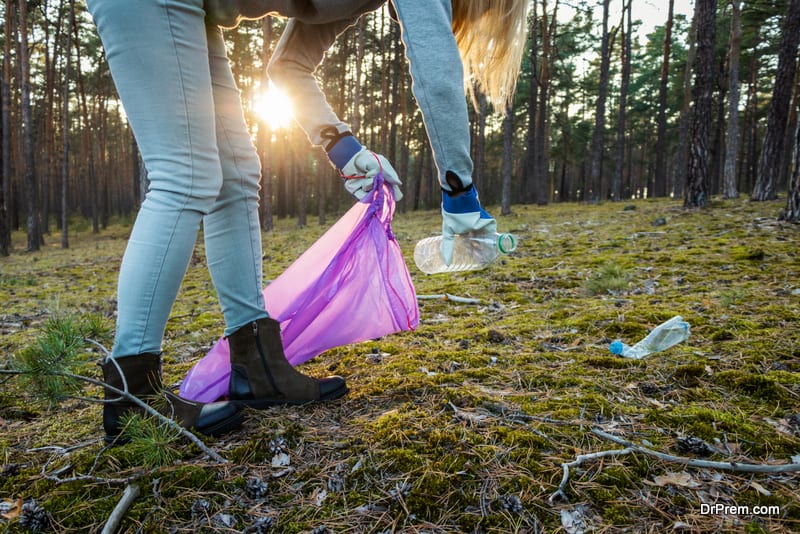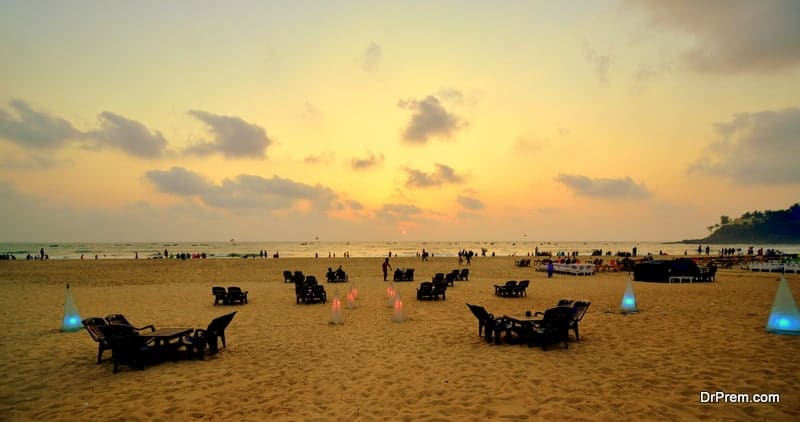Responsible tourism depends upon the pattern of behavior of the tourist and his reactions to the new environment that will largely decide the tone of reciprocals he receives from the destination and its inhabitants. Interaction between the guest and host and all stakeholders would be a crucial domain deciding whether things are working towards achievement of the basic features of responsible tourism.
In this guide, you will learn about the following:
A Complete Guide to Responsible Tourism by Dr Prem – Definition, History, Key drivers, Best Practices, Destinations and other tips
-
What is responsible tourism?
-
History of responsible tourism
-
Why responsible tourism matters?
-
Responsible tourism, sustainable tourism and ecotourism – What is the difference?
-
Key drivers of responsible tourism
-
Growing recklessness among travelers
-
Overtourism
-
Necessity of responsible behaviors
-
Overconsumption and wastage of local resources
-
Prevalence of unsustainable practices
-
Uplifting the destination standards
-
Essential components of responsible tourism
-
Create attractive packages
-
Awareness-building programs
-
Strategic online marketing
-
Responsible human behaviour
-
Improving the socio-cultural ambience
-
Great environment and reliable information
-
Best practices of responsible tourism
-
Community service programs
-
Mitigation of environmental pollution
-
Promoting agro-based industries
-
Water conservation and management
-
Tourism policy set by the government
-
Conservation of local flora and fauna
-
Minimizing tourism impact
-
Boosts economic and developmental activities
-
Constructive approach, the mainstay of responsible tourism
-
Creating awareness in responsible practices and behavior crucial to responsible tourism
-
Respecting locals and their culture
-
How to get more information on responsible tourism?
-
Responsible tourism forums
-
Online portals
-
Twitter
-
Facebook
-
Instagram
-
LinkedIn
-
Out bounding
-
Trip Advisor
-
People and Places
-
Responsible travel.com
-
Safari Talk
-
Activities in Responsible Tourism
-
Proper site selection
-
Know your destination
-
Are you on a mission?
-
Involve in local culture
-
Avoid detrimental activities
-
Start responsible tourism awareness program
-
Protect the interests of the destination
-
Importance of planning in responsible tourism
-
Travel and tourism arrangements in responsible tourism
-
Precaution and prevention tips in responsible tourism
-
Dos and don’ts of responsible tourism
-
Things to do post responsible tourism
-
Countries promoting responsible tourism
-
Kenya
-
Thailand
-
Cyprus
-
Singapore
-
Italy
-
Top destinations for responsible tourism
-
New Zealand
-
Roros, Norway
-
Bonito, Brazil
-
The North York Moors,UK
-
Cape Town, South Africa
-
Tobago
-
The New Forest National Park, UK
-
Aspen, Colorado, US
-
St Kilda, Outer Hebrides
-
The Lake District National Park US
-
Responsible tourism trend to stay forever
What is responsible tourism?
Responsible tourism is basically the accountability aspect of the customer tourist that is dealt with depth realizing the impact of tourism on the environment and society at large. This form of tourism strives to improve the environmental, social, economic and cultural state of the destination in one hand and gives the tourist his money’s worth of pleasure, exposure and edification on the other.
History of responsible tourism

Early human civilization was quite fascinated by the enchantment that nature held. They were aware of the enormous resources and the huge natural potential stored around. Benefits reaped from natural wealth like fish caught from water, game collected from the wild, fruits and nuts plucked from plants and trees and cereals harvested from irrigated fields in fact were a key to their survival and civilization that would keep on expanding putting the entire human race in a place exactly where we are now. The nature and its beauty around him have charmed man since time immemorial.
He had migrated from one place to another in search of greener pastures and was confronted with even bigger marvels that nature had in store for him. He knew Mother Nature was opulent. He also knew one other thing that this opulence is transient in character. He took up charcoal and plant and earth-based pigments, and cave art was born.
The artist in him wanted to preserve the natural scenery, the plant, the animals and the mountains that lay outstretched before his wonder struck eyes. He put it down on the cave walls to give it a permanence, and we have the cave paintings from the Neolithic age.
He also knew that the wild berries, fruits and cereals that he has been collecting from the wild would exhaust someday unless he does something to replenish them. Thus serious efforts took a finite shape, and the art of irrigation and agriculture came up replacing partially the traditional profession of hunting and gathering.

From the ancient times wherever man left his foot prints in an attempt to preserve the natural reservoir of resources and wealth had been evident. The evolution of responsible tourism was spread across the globe from European continent stretched along the East towards Asia Minor and the Oriental Mongoloid dominion.
The migration from Spain and Italy towards the Americas was motivated by grand commercial schemes and gold rushes, and so was the movement of the Arabs to the interior of the Dark and dangerous continent of Africa practically crawling with wildlife and other sinister entities lurking behind bush.
It was the lure of wealth and regional potential of a destination that has driven men since those days, but one fact was deeply ingrained in his psyche that unless he gives efforts to restore what had been lost even this wonderful earth laden with reserves of wealth will turn barren.
Cultural swaps materialized as people from different regions of the world met and existed in a place for a certain length of time. Respect for an alien culture helped it thrive in a new surrounding inhabited by a new set of people adapted to a different lifestyle altogether.
Human reaction towards responsible tourism was laced with a positive attitude and has a checkered history. Environmental issues have always been man’s concern right from the dawn of human civilization. There are indications and proofs vouching human concern for nature and his actions to protect the same.

Man has witnessed both nature’s blessings and wrath since he has seen the light of the day. He had seen floods, quakes, natural disasters, devastating forest fires and volcanic eruption. He had also seen lands laden with crops ready to harvest, orchards full with fruits, rivers and lakes running with edible and non-edible aquatic life, and he had invented novel techniques to harness nature’s gift. Dams have been built across rivers to control flood and utilize its water in several beneficial ways.
Care was taken to see that the aquatic life was recycled, and the water bodies never went dry. Awareness for nature and taking preservative measure so that disasters are contained within a time before they can cause further damage dawned on man no sooner he realized his irresponsible action was the root of all evil.
He travelled across the globe keeping in mind one tree uprooted must be replaced by planting a fresh seedling. Minerals mined indiscriminately would someday lead to mines running empty unless the operation is launched in a controlled manner keeping an eye on the future. Indiscriminate hunting and poaching would result in extinction of wild life and we even have Biblical instances.
Noah fearing the catastrophic deluge constructed his mammoth Arch to preserve and sustain life so that life continues and is not wiped out entirely from earth.
Why responsible tourism matters?
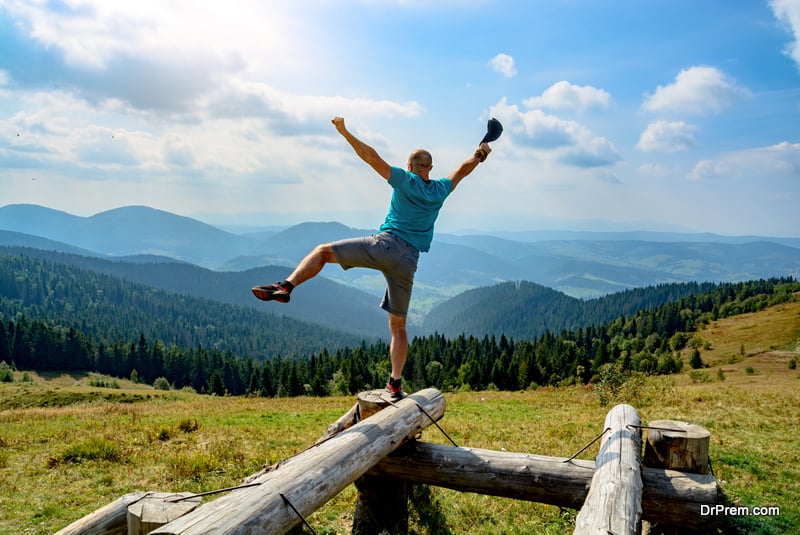
Responsible tourism is an integrated package. It embraces a much wider realm of tourism and the elements on which tourism has its impact, and the response these elements give to the tourism industry from all possible angles. The responsibility of the tourist doesn’t end with the completion of his trip. It is but a beginning of a new phase that includes a sense of responsibility.
It keeps other significant aspects of a visited destination in focus. The environment, plant and animal life including the local human population, socio cultural scenario and off course the regional economy are all put under the lens to explore the impact of tourism on these elements.
When a tourist is into responsible tourism, he sees a bigger picture and not merely a part of it that gives him satisfaction. His broader perspective of a destination plays a vital role in ensuring the very survival of the place for the posterity to explore.
Responsible tourism is just like offering a fresh lease of life to the environmental, ecological, economical, cultural and social platforms upon which a destination is built. Tourism itself creates stress upon a visited destination. Millions of tourists, pilgrims, nature enthusiasts, hikers, trekkers and holiday makers constitute a huge load.
If you add on their luggage and vehicle weight, the resulting impact assume alarming proportions. Even if this ultra-massive dead weight remains static, the damage done to the environment and ‘terra firma’ is considerable. But this is a living mass showing constant erratic movement that constitutes an assortment of activities.
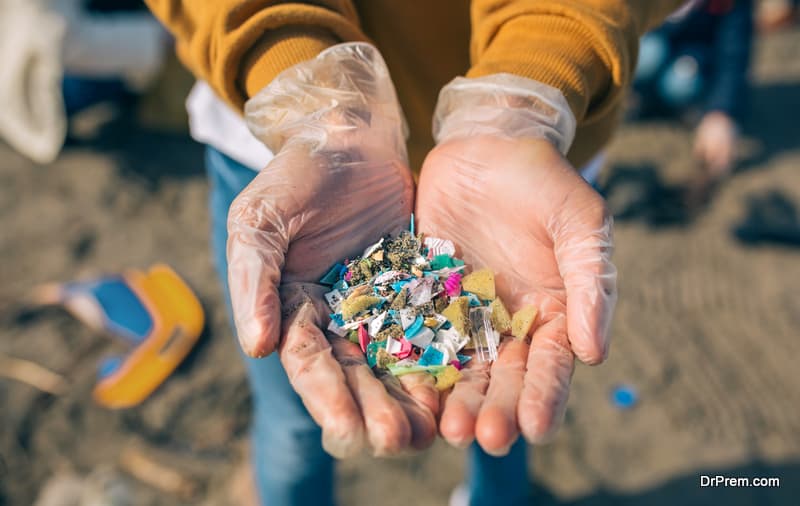
Eating, drinking, merry making, jumping around, littering the environment with non-biodegradable garbage, fooling around with local fauna, engraving verses of romance and promises to sweethearts on tree barks, plucking fruits and flowers that bloom in wild, cramming into overloaded tourist vehicles, shouting at the top of your voice are some burning examples of irresponsible tourist behavior.
Temples burst with ever expanding pilgrims, accommodations are tight with countless tourists and streams, creeks and lakes are polluted with leftovers and dumps from the tourists. Even echo from shouts in close confines with piles of boulders and loose rocks around may well have a catastrophic impact.
The mound crumples and rolls along slopes wiping out settlements and all those cross its path. We have our share of mindless merriment, and the result is some disaster and landslides and calamities that wallop in different global locations, a direct outcome of irresponsible tourism. Up-gradation of destinations at all levels to make it a better habitable place and more tourist friendly location are the twin objectives the responsible tourism strives to achieve.
Responsible tourism is a big revenue earner. It generates employment, and improves the economic and the general living conditions of local inhabitants. It really matters to encourage such form of tourism that is beneficial to the environment and the society in its vicinity. It inspires the tourists, local inhabitants and all the stakeholders to advocate the ethics underlying responsible tourism.
While enhancement of benefits flowing into local tourist destination is one target, it is not the only target of responsible tourism. Restraining tourist activities, which leads to a negative impact on the social, environmental, cultural and economic domain of a destination is perhaps a more important objective.
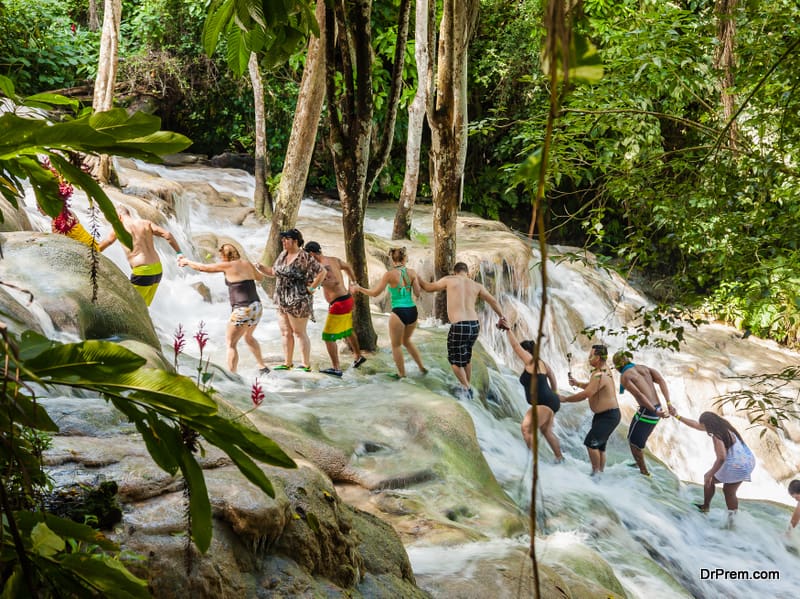
Rash tourist behavior leads to erosion of ethics. Seeds of mistrust and hostility between the tourist and locals are planted. Someday, it will grow into a tree laden with fruits of hatred, mutual disrespect and antagonism. These factors are enough to put an insurmountable barricade between the passionate tourist and a wonderful destination. An amazing tourist spot turns inaccessible over years of negligent tourist behavior.
Attitude of the tourist is an important issue that has a strong bearing on responsible tourism. Destinations and their residents must never be taken for granted that they are duty bound to give you all the pleasure and serve you at your beck and call.
You need to look upon people of the place you visit with respect and friendly mind set just the way you want yourself to be handled by them. This is one of the fundamental morals of responsible tourism dealing with your interaction with people while on tour.
Vandalism and burglary of work of art of historical significance falls in the ambit of responsible tourism as well. However, this type of tourist attitude is inclined on the extreme end of criminal behavior and no doubt is severely injurious to the interest of a tourist destination reputed for art and culture. It is a matter of basic mother wit if not complex judgment that pricks your conscience to raise a remonstration against such unlawful acts and help set up a stringent control device.
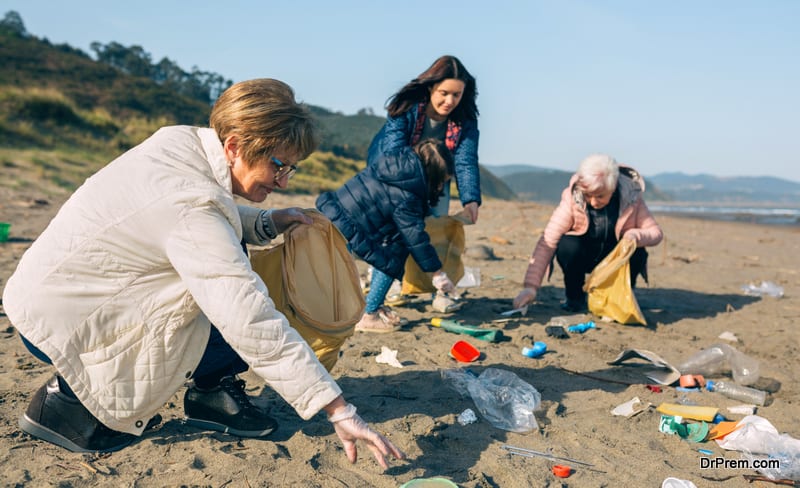
Responsible tourism is not just putting up hype for a locale fit for tourist visit. It goes several positive steps ahead and sets up the much-needed appraisal of the impact tourism has on the environment of the visited destination. Resource consumption in destinations should be done in a controlled way and equally important is to mitigate wastage. For example, take the case of trout fishing in mountain creeks.
You concentrate on collecting trout round the clock and there will probably hardly any trout left for others to fish! Your consumption pattern needs to be lowered to let others especially the future generation to have their fair share. This preservation concept matters a lot so that the destinations and their immense reserves do not get lost to human greed over a short span of time.
Essence of responsible tourism also includes encouraging education among the local residents of a destination. They grow up with a set of refined skills and training through education, exposure and awareness so that they can serve the customer tourist better ensuring the long-term survival of the industry.In short, responsible tourism is the prime need of the day as here you are inspired with a quest to explore the environment around as you get to know its people, their culture and economy.
Responsible tourism, sustainable tourism and ecotourism – What is the difference?

A subtle difference exists between these niche tourisms although the terms often seem to be synonymous because of few overlapping features. Very few are able to make out the distinction and confusion prevails.
If we go by the Oxford Dictionary, ecotourism is defined as a form of “tourism directed towards exotic, often threatened natural environments, intended to support conservation efforts and observe wildlife’. Even though it focuses on the environmental factors of destinations, it also implies to be respectful of the locals dwelling around.
Sustainable tourism has deeper implications. The WTO (World Tourism Organization) advocates optimal and judicious use of natural resources in tourism respecting the socio-cultural fabric of the destination ensuring viable long term tourism operations benefiting the destination as a whole.
Whereas in responsible tourism, both the tourists and hosts bear the responsibility to ensure the above two aspects are maintained. The decisions and actions from both the parties should be aimed towards the betterment of the environment and the local community.
The tourists’ attitude matters in responsible tourism. While visiting a natural reserve, if you put up in an eco-friendly accommodation, follow healthy practices without wasting local resources or causing harm to the environment and creatures, you are following responsible tourism. You strive to create a positive impact and come back enriched from a new cultural exposure. Responsible tourism supports sustainable and eco-tourism.
Key drivers of responsible tourism
The realization of turning the world into a better place is the underlying motivating factor in responsible tourism. This positive line of thought that inspires the tourists and the hosts to create a favorable realm of interaction is the key driver to responsible tourism.
Growing recklessness among travelers

Reckless attitude shown by the tourists and an equally harmful retaliation by the local community barbed with hostility is destructive. It is detrimental to the tourism industry. A little foresight and a progressive frame of mind of the guest and host dismiss all the mistrusts and cultural chasm that may exist.
A show of accountability, constructive visions and intercultural harmony would bring in tons of benefit to all associated and affected by the business of tourism. The stake holders clearly start to envisage the huge scale of all round progress arising out of behaving in a more responsible manner when he becomes a party to the cycle in which tourism industry operates. Thus, the seeds of responsible tourism are planted.
Overtourism
Imagine the volume of travelers handled by Paris, Venice, Rome, New York, Iceland, Croatia, Angkor vat, Machu Pichu, and more annually! This is creating a severe pressure on the local resources making the destination unsustainable for future tourism. The first step of responsible tourism lies in careful destination selection so as not to cause further resource crunch that will hamper the lives and livelihoods of locals.
Necessity of responsible behaviors

Responsible tourism is a saleable product, but its perpetual character is what that drives consumers towards being more accountable while doing a tour. The character of destination shifts as its location shifts in terms of the relative global coordinates. However, the essential factor that makes us stop and think is its permanence. More responsible we become as a tourist more is the chance of survival for a destination attracting tourists for ages to come.
Whether our exploring ground is set amid a jungle, in a historical site dotted with heritage monuments, in an ocean cruise or by the sea beach, it is always nice to think what is laid before your gratifying eyes should enchant your posterity as well. The propensity of the tourist for responsible tourism is built out of a drive to help sustain the social, cultural, ecological, economic and environmental vibes of a destination. However, this attitude of accountability does not pop up overnight.
It is the fruit of education and the training process the tourist has been through over years of sincere and concerted efforts given by the ministry of tourism, tour operators and local guides in turning the crude bunch of merrymaking visitors into a new brand of tourist whose mind is focused on the objectives of travel responsibility and bringing in an all-round progress to the visited site and its people and all the stakeholders connected directly or indirectly with the tourism business.
Overconsumption and wastage of local resources
A strong desire to consume local products is quite often prevalent in a sample survey on tourist behavior. Beautifully crafted local masks, woodcrafts, authentic garments woven locally employing indigenous weaving kits, local chocolates and beverages have always fascinated tourists who arrive from an alien culture.
It is not always the quality of the product or the champion brand that appeals. It is the very sight of the products or its flavor back home that turns you a bit nostalgic.As for example, sipping over a cup of Assam tea gives you a close eyed pleasant flash back of this beautiful stretch of land located in the eastern fringes of India.
Tourist consumption shoots, and the economic graph of the region sees a steady rise. The local producers are inspired to go for more of quality product. The impetus is certainly the flow of money involved. The tourist besides being charmed by the panoramic wonders has his cup of satisfaction as an added bonus.
Large industrial organizations have extended their full support towards making a destination beep with pride and glory in the global ranking. Profit motive is certainly the driving factor, but these syndicates are not blind to the correlation that exists between the tourist and the environment.
Prevalence of unsustainable practices

Their responsibility towards nature and the means through which they deliver it also find equal importance. Many hotels have clearly defined policy laid out as strictures on responsible tourism for the tourists to read out and follow. The transportation industry has shown enthusiastic response as well. There are countless examples of the tourist busses slapping a penalty on a smoking passenger.
The transport industry has installed specially designed vehicle tires to generate minimum resonance to avoid the harmful impact of sound pollution specially when plying through safari parks and wildlife habitats. For the same reason, they have put casing of muffler to stop ejection of pollutants and burnt fuel from the vehicle exhaust pipes.
These little measures exercised with discipline would be a great educative exposure to the tourist that makes him aware of the peril that could harm the environment if acted in an irresponsible manner while on a fun trip. These bits of edification and live demonstration by experienced guides and eventually support from industries are certain powerful driving forces that would make the tourists appreciate the need for responsible tourism.
Uplifting the destination standards
As the tourists visit their selected destination, they look for infrastructures and facilities that would answer their needs while on tour. Tourist information bureaus have come up in places to provide the tourists with the information he needs. New job opportunities have been created.
The need for experienced, sober and qualified tour guides has been on the rise as is the need to have more and more qualified room attendants, butlers and chefs who are just the masters in their own trade in their own special way. This added surge in the demand and supply of quality manpower in the field of tourism has become a key driver making the stake holders more target oriented so far as responsible tourism goes.
Essential components of responsible tourism
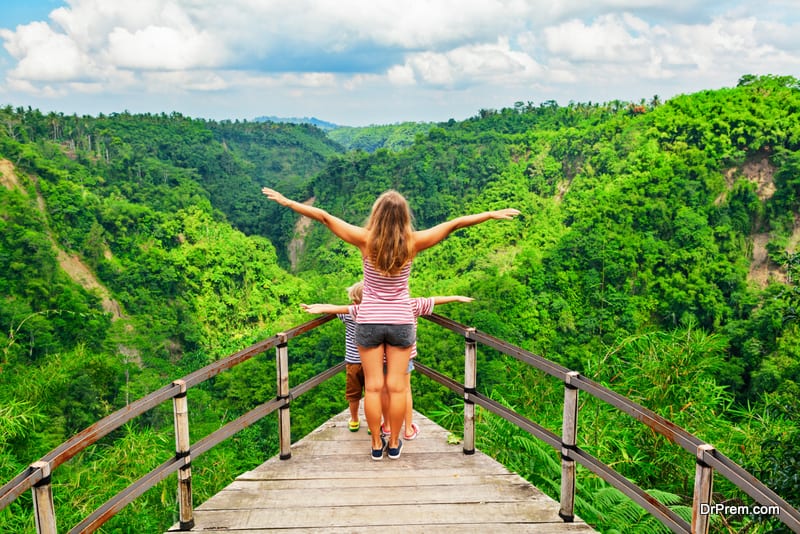
Responsibility tourism rests on a number of fundamental functional units. How well these units interact among themselves will decide the success of responsible tourism. The most important component of responsible tourism is the existence of a market. Responsible tourism should be viewed as a saleable product.
Create attractive packages
All the tourism industry needs to do is to present this product in attractive package with a lot of trade hype and promotional efforts so that the customer tourist is tempted to buy this product.
The access of responsibility tourism as a trading product to the market is an important criterion that would decide whether it will have a future or not. The concept of responsible tourism is great and greater is the need to create customer awareness that such a form of niche tourism exists, and there is a utility in spending money on it.
Awareness-building programs

The customer needs to be educated about the concept of responsible tourism, and its contribution towards the development and sustenance of a selected destination needs to be put across the table with an aggressive thrust.
Before delivering the thrust, a lot of research and meticulous study concerning the real worth of responsible tourism needs to be carried out lest the marketing hype would just sound like an empty vessel without bearing the fruits of the time and resource consuming exercises undertaken.
It is a fact that the tools that help communicate the pleasure and benefits arising from responsible tourism are far too expensive. It involves trained manpower with competitive sets of skills and knowledge synchronized with consumption of time and resources, and the ability to organize tradeshows and awareness programs so that the customer starts appreciating the concept of responsible tourism. The customer will finally decide on launching a trip emphasizing on accountability and responsibility of tourism where fun and pleasure would spin as secondary objectives.
Strategic online marketing
The methods of marketing strategy for promoting responsibility tourism have gone viral and have selected the electronic media over the past few years. Online marketing agents who form an important component in this complex marketing machinery are sourced at a price and play a crucial role in feeding the customer tourists with the marvels associated with responsible tourism.
Online marketing of responsible tourism has a distinct edge over organizing workshops and awareness camps for propagating responsible tourism among prospective consumers. In the first place it is time saving. Physical efforts and painstaking running around is avoided. Movement is reduced to a great extent and emphasis is put more on innovative concept selling and for that a well-designed website is imperative.
Online marketing which is certainly an essential component of responsible tourism saves a lot of money. Organizing a responsible tourism tradeshow would need a suitable platform and hiring space and models for demonstration. Unless you have enough infrastructural set up you possibly cannot accommodate a large segment of clientele who is enthusiastic about your product and to whom you can sell your brilliant ideas glorifying responsible tourism.
Numbers are important and unless you reach out to a sizeable population segment your endeavor would never see the light of the day! Comparatively the electronic media along with its social networking sites are far more effective.
They ensure massive customer coverage and its service would even reach out to enthusiasts sitting at the remotest corner of the globe and to top it all it is surprisingly fast and you can always edit your message whenever you want and create your promotional exercises employing latest programming tools which are largely customized. Just upload all what you have to say in favor of responsible tourism as high voltage snippets in youtube and see the miracle worked!
Responsible human behaviour

Next essential component of responsible tourism is the human element involved that is the tourists themselves. It is the tourists who decide the future of responsible tourism. It is the tourist who would feel the need from within to behave with a little more responsibility and maturity while on their holiday trips.
Here, the demarcation line that alienates a tourist belonging to a nation from another belonging to a rival nation with diametrically contrasting culture and conflicting ideologies and different economic background needs to be discarded. The tourist here is global. Harm inflicted upon the social, cultural, environmental and economic scenario of a destination located within the political boundary of an alien nation will give him as much pain as he would feel in case his own country had faced such an erosion of wealth and values.
Improving the socio-cultural ambience
The need to sustain a destination and improve the environmental and socio cultural atmosphere and enhance the standard of living of the locals strike a chord deep set in his conscience, and he finds himself working as a fulcrum discharging his responsibilities towards achievement of goals of environmental and social upliftment of the destination he has travelled. However, this sense of responsibility doesn’t grow overnight; it needs to be cultivated over years of training and exposure to the outside world to broaden his mind and intellect.
Great environment and reliable information
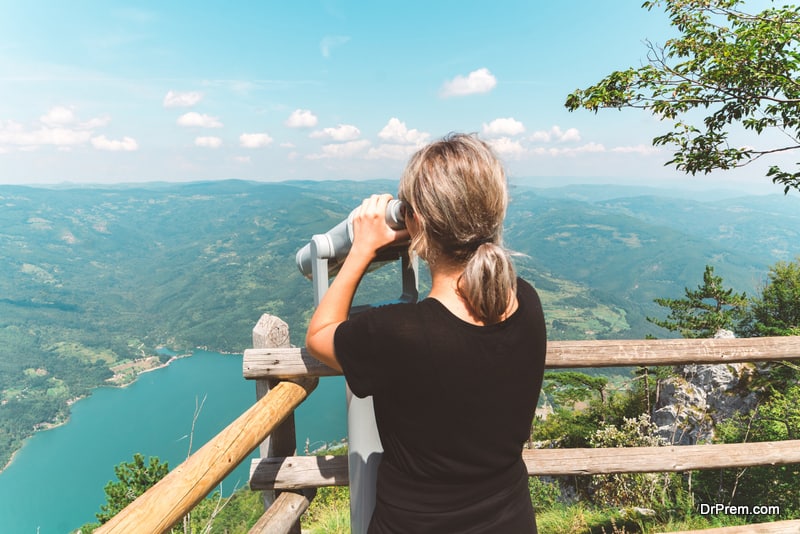
Yet other essential component would come from the host country that has staged the show and have allured the guest tourists with a fiery display of all its appeals, wonders and enchantments. The first criterion is the hospitality that would work a long way in creating a favorable impact on the guest.
Homely environment, reliable tourist information system, efficiently operating customer complaint cells and the administrative machinery, fair price structure, good food and reasonably priced accommodation, general honesty and helping attitude of the locals and certainly the panoramic landscape are essential components that turn tourists on.
The tourist feels at home and would enthusiastically contribute and participate in activities that will directly or directly reap benefits to the destination, its inhabitants and the ancillary industries that have mushroomed around the tourist getaway.
Best practices of responsible tourism
The success of responsible tourism would depend on a concerted effort by the government and private machinery, the tourists and the host community. In fact, best practices of responsible tourism should come all stakeholders interacting with the tourism industry.
Serious concern shown by the tourists and diligence exercised by them to make this world a better place to live may work a miracle. Best practices of responsible tourism should be implemented with religious regularity and discipline. An effort to bring diverse cultures close to each other would be a progressive step in the direction of execution of the best practices of responsible tourism.
Community service programs

Community service programs would give people belonging to varied customs, faiths, and political views and unequal economic brackets an opportunity to intermingle with the tourists. Cultural barriers would open up, and there should be a two way flow of intercultural swap. Industrialization in hill sides and along the sea beaches would be a great drive boosting the local economy.
Employment is generated, and a chunk of the local population could have a secured source of their daily bread and butter. The production graph would shoot, and both the incumbents and entrepreneurs would have smiling faces seeing the individual and organization target congruence achieved. But here industrial effluence would again be the watch word.
Mitigation of environmental pollution
Pollution needs to be controlled. Harmful chemical wastes and hazardous spent fuels get dumped into rivers, lakes and sea causing irreparable damage to the aquatic flora and fauna. This needs to be stopped. Dark venomous fumes pump disaster into the environment.
The atmosphere gets choked with carbon shoot and dust. Plant life gets threatened. Birds die or migrate elsewhere for a safer abode and animal life gradually fades out into extinction. Once a magical tourist destination vibrant with tourists, local enchantments, panoramic landscape and exotic combination of plant and animal life loses its charm and eventually slips into oblivion.
Promoting agro-based industries

Promotion of agro-based industries would be ideal for a charming tourist destination. This would generate negligible polluting elements. Apple, pears and cherry orchards would suit well in a rather cold and mountainous terrain. Coconut and palm plantation would go fine along the sea coasts.
Orange and an assortment of citrus groves would have a riot of harvest in a tourist destination full of sunshine and irrigation facilities. Tea, cocoa and coffee plantations could be a source of potent lure for the tourists to visit and spent their time and money on local up-gradation and receive tons of pleasure and educative exposure.
Soft and hazard free industries encouraged, approved and funded at the ministry level could enhance the economic status of a locality. The type of industries that would thrive well bringing the local talent under limelight could be those based on regional craft, sculpting, clay modeling, painting, embroidery, indigenous chocolate and other condiments manufacture.
Development and proliferation of local product-based industries would certainly be considered one of the best practices of responsible tourism. Mass tree plantation program initiated by a combined effort by the forest department and ministry of tourism would also be considered a major step in the direction of preventing habitat loss, which is a very common intimidation plaguing the ecology.
Water conservation and management
Wastage of water is to be controlled where water is a scarce resource. Water consumption should be within a reasonable limit. Particularly, the hotels and resorts in the tourist spots should exercise control on water spillage. Your mission should be to save water and save life and that would be a prudent practice on responsible tourism. Other wastes and refuses like old newspapers and used plastic packs should be recycled and put to suitable uses.
Tourism policy set by the government

One of the best practices of responsible tourism that should come from the government level with strong administrative control would be to make the entire tour destination come under ‘No Smoking Zone’. This should be mandatory and the offenders should be prosecuted with severe penalizations as not to repeat the crime again. Similar disciplinary actions should be taken against offenders littering the virgin soil with trash.
The basic outline of responsible tourism policy needs to be spelt out in a lucid language comprehensible by the common people. The initiative is to be taken at the government level and hyped on media. It should be easily noticeable by the tourists, local inhabitants, network of business that centers around the tourist appeal of the destination. This gives the stake holders a crystal clear direction as to what exactly is expected from them that would match the objectives of responsible tourism.
Nothing should be kept fuzzy or cloud the methods and means to be adopted to ensure that the destination survives. The future generation should be able to draw pleasure from visits, and the philosophy of responsible tourism should be passed on to them as well. The medium of edicts should be bold and eye catching! It may range from roadside bill boards, on cabs and tourist buses, restaurants, public lounges, tourist offices and other pronounced landmarks where the tourists collect.
Conservation of local flora and fauna
An objective drive to save the greenery should again come from the department from of forestry. All aids pertaining to controlling deforestation should be extended by the government. The source of funding these aids may well come from the revenue generated from tourism. Mindless logging has reduced substantial portion of the once lush Amazon into a barren patch.
The fauna has lost much of its habitat and may face extinction in the future. Cutting and collecting wood for fuel is a common local practice and is unquestionably detrimental to the environment and ensue undesirable climatic changes. Somewhere, some stringent control device is to be installed. This sure will be another rewarding and best practice in responsible tourism.
Poaching is another criminal activity that involves indiscriminate destruction of fauna for food, ivory, fur and coat and sometimes for manufacturing potion believed to have aphrodisiac properties, which in fact is largely a myth. Naturally, these animal products fetch handsome price in the international market.
However, it destroys the ecology and the animal wealth of a destination. An all-out effort to control this activity and punish the offenders is to be initiated at the government level. This exercise would feature as one of the best responsible tourism practices.
The pollution control board of a country where the tourist destination is located plays a major role in exercising control over vehicles plying across the roads emitting poisonous gases. These pollutants defile the environment and make the place unattractive to the tourists. So a thought and action in this direction would certainly be a good responsible tourism practice.
Minimizing tourism impact
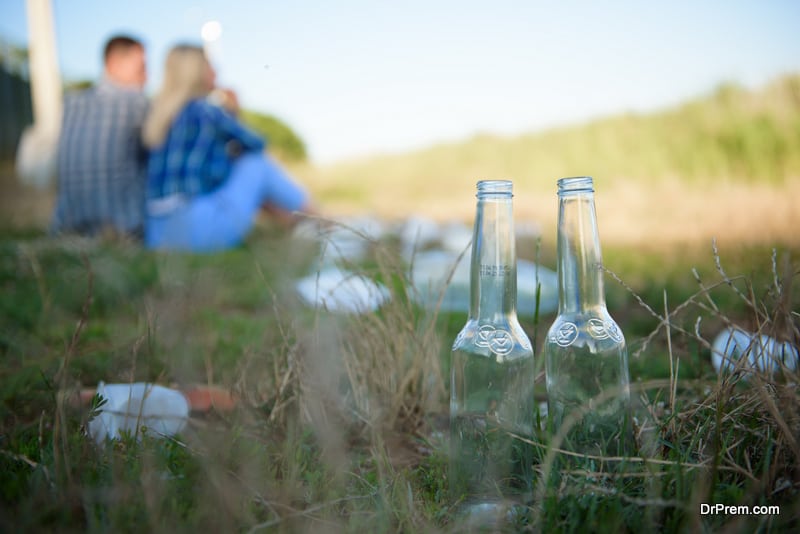
Harmful impacts of tourist visit upon the ecological, environmental, economic, social and cultural sphere of the destination must be minimized. It should be ensured the destination doesn’t lose its originality and ethnicity under the alien pressure of tourism by outsiders not belonging to the soil. Identity of the destination must be retained, and the tourists have an active role in this area.
Boosts economic and developmental activities
The presence and actions of the responsible tourist works a long way in enhancing the economic state of the local residents by generating more jobs to get themselves absorbed fruitfully. Job creation is based upon primary and secondary impact of the tourism industry. Tourists visit destinations and leave satisfied. Words spread fast, and marketing hype is propagated creating a favorable market.
More tourists are lured in. Hotel industry expands and more restaurants are set up and the responsible tourists play a key role here. Their consumption pattern shoots. More hotel rooms are booked within a specified time span and more food and drinks consumed. Money flows in and the trade expands. Tourists pour in numbers and to support the additional demand new locals are recruited. The local residents earn a good amount courtesy the tourist.
The local residents are no longer mere spectators watching foreigners come and enjoy their country. They have now an active participatory role in decision making that runs the cogs of the tourism industry. Their access to the tourism industry becomes easier and commanding. They form an association and work up their duties, responsibilities, demands and wage structure in coordination with the ministry of tourism.
Tourists’ opinion poll is set up, and their views and suggestions for improvement weighed. Working conditions are made better. The tourist and local rapport become more defined, and they work together towards overall development of the destination concern encompassing all its elements including environmental, cultural, social and economic units.
Constructive approach – the mainstay of responsible tourism

Both the locals and visiting tourists become aware of cultural wealth, the ethnic heritage and the biodiversity of a destination. They take a positive approach and focus their attention on conservation of the social, cultural and environmental prosperity of a region contributing towards its upliftment and promotion.
This positive correlation between the tourists and the local community is a wonderful step to start with. It makes tours gratifying to the tourists, and they get an insight into the life, culture, thoughts and beliefs that guide the local populace.
Tourists start showing respect to the local way of life and take all the pain to ensure they do not get worn out. By buying local product the tourist help sustain the local economy. The locals reciprocate expressing their gratitude and hospitality. They hone and bring up their traditional dexterity and talent, and the tourists gets to see and buy wonderful workmanship of local artifacts and masterpiece work of art. Responsible tourism calls for responses from the tourist depending upon specific circumstances and nature of the destination visited.
Creating awareness in responsible practices and behavior crucial to responsible tourism
When adventure tourism is under focus where the tourist explores a wild habitat and the mass of fauna, the first code to be followed is observing silence. Shouts and high pitched vocalization may scare away wild life, and it certainly disrupts tranquility that rules around. Sound pollution has a detrimental effect upon environment and tourists are expected to be responsible enough to keep outbursts of joy under control.
Forest fires are devastating. Both animal and plant life get charred into heaps of carbon while the flame keeps advancing and burning out all that comes in its way. Forest fires are often caused by live cigarette butts thrown carelessly in the bush. Bonfires, campfires and barbeques are possible inputs that lead to fire catastrophes in the bush.
The tourists must show responsible behavior and think twice about the consequences before starting barbecue or setting camp fire while in a mood of celebration. Equally important is to inform the forest official if the tourist locates one. Forest fires cause irreparable damage to the ecosystem and often it is found it is the tourist who is responsible.
Throwing garbage around amid wilderness can turn lethal. Plastics, wrappers, poly packs, empty bottles, leftovers, spilling chemicals and other forms of inorganic garbage are typical pollutants in a forest generated through reckless tourism. Plastic wrappers can choke and kill masticating herbivores. Chemicals can poison them and glass shards can inflict slashing gores to animal life, and these are burning examples of harm inflicting tourism. I
In responsible tourism, the tourist is educated to refrain from actions which go against the fundamental norms of adventure tourism so that he completes his trip with a guilt free conscience having contributed something positive to the environment that he has visited and drawn pleasure from.
Respecting locals and their culture

Appreciating and participating in local cultural programs, folk dances, dramas and music concerts are manifestations of responsible tourism. It encourages the locals injecting a rejuvenating dose of enthusiasm, and they are inspired and encouraged to perform better. The cultural gap is bridged, and both the guest and the host get to know each other better.
Buying local products like handicrafts, embroidery, paintings and artifacts encourages the locals. They get an opportunity to earn, and the impetus makes them showcase better sets of skills creating a brand of authentic local merchandise. The essence of responsible tourism is thus to improve all the elements associated with the destination and draw fun and pleasure.
How to get more information on responsible tourism
Responsible tourism is taking a lead in the tourism rat race. You would go wrong pathetically if you rate it an obscure concept. In fact, the sooner we think of the spirit of responsible tourism the faster it would seep in through every conceivable form of getaway entertainment be it in the realm of culinary, cultural, beach holiday or historical, the worth of giving a touch of sustainability and show of responsibility would enhance your pleasure on an amplified scale.
Information and more of it flows across a myriad media grapevine, and all enthusiastic about tour and travel have acknowledged its necessity in the face of a recent dislocation of global equilibrium. Landslides and dangerous glacial thaws, Kedarnath disasters, South Pacific Tsunamis, Amazon deforestation and socio political mayhem point an accusing finger at us. Heaps of condemnation are put on us and at our apathetic attitude towards those rolling in abject penury and indifference towards a dying culture, rash and exploitative attitude towards flora and fauna and our voracious consumption pattern have raised voices of alarm that the end could not be too far.
Responsible Tourism forums

Awareness programs and forums on responsible tourism have gained momentum drawing a huge influx of tourists and conservationists fired with an inspiration to contribute back something substantial to mother nature and a tourist location whose immense panoramic and cultural wealth have flooded the tourists with mirth and gratification.
Forums, events and tradeshows have invaded the responsible tourism information scenario. In the last week of March 2013, an information forum on responsible tourism was organized in Bucharest and Romania. Tour buffs, nature enthusiasts and supporters of a greener and peaceful planet attended this grand meet held with the backup encouragement by the Centre for Industrial Economics & Services of Romanian Academy.
This forum champions the cause of responsible tourism. It attempts to carry on with the collaborative enterprise that was initiated a year back. It was aimed at setting up a communicative channel of information on responsible tourism throughout the globe.
The local produce, arts and craft, plant and animal wealth and cultural marvels like folk dances and ethnic skits needs to be located and brought under global limelight. Typical forms of niche tourism like cultural, culinary, historical, wildlife, photography, festival and rural are the right kind of communication contacts live, thrilling, pleasant and vibrant, which could be rightfully employed to unearth the hidden treasures of the rural sector which would otherwise go unnoticed with immense opportunities foregone.
The ethnic treasure and huge potential of the rural sector is latent and needs to be tapped for an all-round growth focus should be concentrated on tourism. It is the right tool to explore the resources. The resources should be put to judicious utilization. The motive is to generate mutual benefits touching the rural destination and the community it represents. Stakeholders including the tourists should be the beneficiaries too from the other end.
So in the purview of the points touched here responsible tourism is seen as a divine and timely intervention. According to the Romanian and International Rural Development organizations, the rustic products need to be attractively packaged. These should be handpicked carrying the right quality and marketed with the right kind of hype and aggressiveness catering to the needs and requirements of the consumer tourist.
The forums give enough value-added information to the interested tourists and set before them crystal clear targets, various issues they are expected to encounter and the feasible answers to tap the huge potential embedded in the rural belt by encouraging responsible tourism among themselves and their fellow tour mates.
Online portals

Information sources on responsible tourism are available online as well. The interested and initiated tourist can have a virtual exploration into the domain of responsible tourism. He can put across his opinions, blog his views and get feedback. More the interaction over the internet more will be the inflow of updates on responsible tourism.
Excellent online portals exist where discussions on responsible tourism are encouraged. Live and thought-provoking issues come up. Sometimes the discussions flare up inspiring deliberations and a serious concern about nature and conservation of culture. Sometimes the discussions are barbed with heated argument and counter arguments lined with passion and hostility and sometimes they are just neutral bland statements.
So here we go:

Twitter social networking site encourages tweets and chats bordering on the theme of Responsible tourism and currently two chat rooms exist. They feature every Wednesday at 6pm GMT. A set of four questions is tweeted during chat hour touching different aspects of responsible tourism. Participation is proffered by both experts and amateurs.
Brilliant observations and opinions come from the experienced in the field, and travelers with a fiery quest get to learn a lot on the subject. The Euro eco online circuit comes in the Twitter at lesser frequent intervals once in a month every Wednesday. The emphasis here is more on tourism industry promotion and quality accreditation issues. It is easy to register in the site. All you have to do is set up a column and fire your tweets.

There are two responsible tourism networking groups that were developed from the events launched touching responsible travel aspects on the eve of World Responsible Tourism day at ATM. On similar lines, WTM manages and administrates the responsible travel blog forum online. Discussions feature, blog and counter blogs are shot, and the site comes pulsating with vibrant bits of information to feed the hungry tourist!

Travel information and images posted on this social media platform are mindblowing! Responsible travelers, environment activists,voluntourists, social communities, and NGOs often post useful information on responsible tourism. Their efforts are praiseworthy in bringing lesser known destinations to the forefront of travel industry. Travelers get the right information about responsible tourism destinations and specific best practices to be followed. In the end, both the travelers and locals are happy.

This networking site is inclined on the professional profile of the registered members. It is populated by a number of responsible tourism groups. The discussions are thought provoking, and the information are live directly from professionals working in the field.
Members are professionally connected, and here you will find members in the profession of trip advisors and guides operating in the field of responsible tourism. Their vast range of experience would help others with vital and latest information. One wonderful feature of Linkedin blogs is unlike its facebook counterpart, this is permanent and do not fade out after a couple of days!
Out bounding
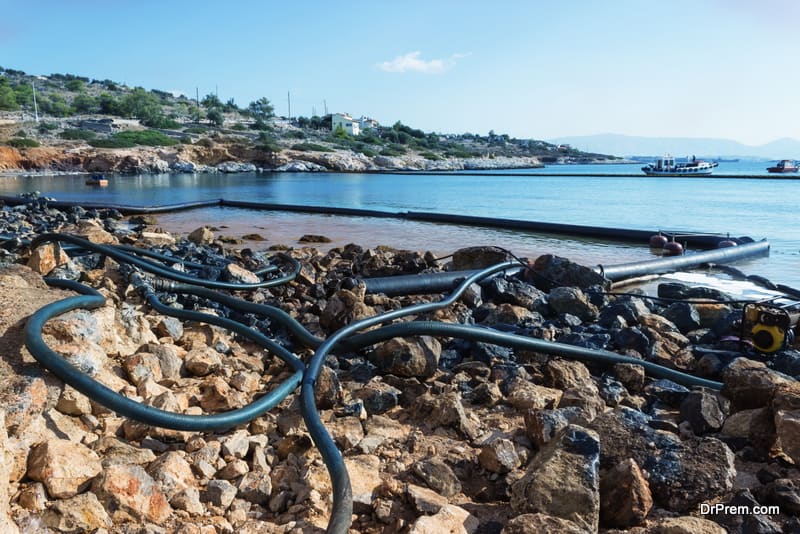
This is an online discussion forum on responsible tourism. The site is interesting as it is evident from thoughtful discussions on whether ocean trips to view wild dolphins are ethical or not. Whether ocean exploration into the dolphin country is harming the schools with oil slicks and other garbage dumped into the blue from the cruise. Do the trips constitute a threat to habitat destruction of these intelligent marine mammals? Discussions are exciting and backed with trivia, and lots of informational updates come up through blog interaction.
Trip advisor
In this online forum, very little space features on responsible tourism. However, potential for expansion exists. Trip advisor is best suited for tourists in search of travel agents who organize and guide on the responsible tour.
People and places (Responsible volunteering)

This website shares and discusses various issues on responsible tourism and could be a good source of information.
Responsible travel.com
This site presents brief directions about various places to visit on responsible tourism and the ethics involved in such visits. Threads and links exist for shooting your queries and getting them answered.
Safari talk
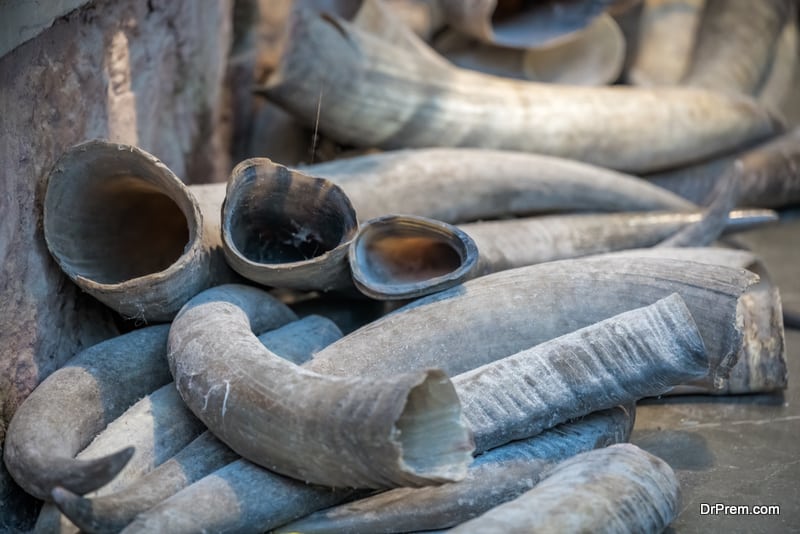
This site entertains discussions and supplies information on wild life and forest conservation. Views are blogged as regards burning issues like poaching and deforestation. The internet is a very resourceful place for collecting information on responsible tourism. One wonderful characteristic of blog sites is unlike magazines, books, journals and other forms of printed texts, it gives the tourists an opportunity to blog his queries and shoot his opinions, likes and dislikes. It is a livewire media of communication.
Activities in responsible tourism
If you support responsible tourism and like to go for one considering yourself a global citizen rising above petty provincialism, there is an extensive range of activities that you will certainly enjoy and will be a guiding outline on which your mission for safeguarding the environmental, ecological, cultural and economical interests of the destination you have planned to visit.
Proper site selection

The first thing that comes in mind would be to select your location where you would like to have your responsible tourism launched.Suppose, if you select India as your destination, you need to get a fair idea of its cultural, social, economical and political state. Prior to actual visit, it will be a wonderful exercise to know about the floral and faunal distribution over the different regions.
Know your destination
Learn about the season, and be sure your visit will be on sunny holidays and not overshadowed by a gloomy sky and long spells of showers. Learning the local language at least a couple of words expressing courtesy will straight go to your advantage. You will get a better behavioral response from the local people. Learning a few polite customary gestures that are common with the locals will certainly be an added bonus.
Are you on a mission?

When you have a mission of upgrading the financial status of the locals, you should take a serious trip around the artisans and local craftsmen living quarters, their studios and workshops and devote some quality time to observe how they spend a typical working day. The glint of interest in your eyes and your focused presence will bring up a shot of interest and inspiration in the local artist, and he will be encouraged to open up a bit more to you.
He might well share the secrets of his profession and trade. Just watch him in action, the fine touch of his paintbrush and the delicate movement of his sculpting tools and all the thought that goes in getting his dreams realized and translated into creative masterpieces.
Involve in local culture
It will be a fantastic educational exposure for you. The cultural communication between both of you builds up silently as you shoot questions centering on the subtle nuances of the subject he concentrates on.
And he answers you back putting up every bit of his mastery over the subject. You can take photographs of his art pieces certainly after taking his permission and preserve it as a treasured possession. You may take a step forward and buy a couple of his manufactured craftsmanship.
Your sole contribution may be insignificant, but if one hundred responsible tourists join and buy the local craft the contribution will be substantial supporting the economic lift of the community of artists belonging to the destination you have in mind to explore, upgrade and make it survive through the time horizon.
Avoid detrimental activities

Being a little responsible to local flora and fauna will be another important activity. Here you do not have much activity to execute it will be simply great if you could desist from certain actions which are detrimental to local plant and animal kingdom and here you will be acting like a true responsible tourist always on alert that your presence doesn’t leave any negative impact on the local vegetation and fauna.
Actions detrimental to plant and animals would be like setting up bonfires and campfire right in the middle of the jungle or cutting trees for cooking fuel or erecting temporary platform in the forest for bird and animal watching. Your activity would include reporting to forest official incidents of poaching, tree felling, setting bushes aflame or torturing animals.
Hunting animals for food is a major crime and your effort will be much appreciated if you can assist the forest department in curbing these irresponsible activities. Attending wounded wildlife, helping a desolate and lost bird find its way back to its nest and refraining from littering the forest ground with garbage would be typical activities that you might get an opportunity to implement as a responsible tourist.
Start responsible tourism awareness program
You can well start a responsible tourism wakefulness program by creating your personal website. You can make this site attractive by posting illustrations and photos all of which are directed at responsible tourism.
Soon you will notice the site will be flooded with blogs and counter blogs, and the message that you desire to deliver concerning accountability and responsibility relating to travel have reached far and wide and have been appreciated by many people who would happily join you in a travel plan.
Protect the interests of the destination

All your activities should be directed towards defending the interest of a destination you intend to visit ensuring its long-term survival. Local folk songs and dances, skits and plays are fascinating pieces of experience that you have acquired from your visit. You get an insight into the cultural side of the place.
It becomes an eye opener, and you get to learn a lot about the beauty of a lifestyle with which you were never familiar. You feel there is a serious need to carry back home what you have seen and felt. Your camera could help you in this regard to carry back photographs of a wonderful culture. It becomes a constructive activity on your part as a responsible tourist.
Volunteer educational programs for the locals
A great piece of activity would be if during the duration of your stay you could organize an education program for the poor children of the locality and at least spare a few hours on this regularly. Educational program could be text based or it could also involve practical skills as well improving the cognitive aptitude like toy crafting, painting and clay modeling.
What these children have learned from you would help them shape their future and carve out a vocation for themselves. Your mission as a responsible tourist will be fulfilled if you could really help build the future generation of the destination you have selected to explore, travel and develop. You can help the rural economy by visiting directly the farmers and explore their lifestyle. Methods of irrigation, harvest and tricks of farming would be a wonderful exposure. We could buy their produce and help them make some money.
Enrich your memorabilia

It would be just wonderful if you could take presentations and souvenir from your own country for the local residents of the destination you have selected to visit. Gifts for the local children will be an ideal scheme. This would bring two cultures closer to each other making globe a common dwelling place for people from different countries with cultural, economic and social contrasts. Words like provincialism and separatism would be removed from the lexicon and we will be working towards global harmony.
Importance of planning in Responsible tourism

Responsible tourism is a bit more than your normal pleasure trips. A constructive mission looms large although there is nothing to fear as it will not push your quest for pleasure into a secondary priority ranking. However, this niche tourism is guided by effective and down to earth planning in absence of which your responsible tourism project won’t progress much further.
In the outset, you need to design a sort of things to do list. As it is obvious, this list will include those activities beneficial to a destination and the elements in its immediate vicinity.
Needless to say this includes the human element among others with a difference unlike others it will respond back in a similar way in which it has been treated. The first issue to concentrate on is to extend help and benefit to the local community.
For getting a crystal perspective into this area, you need to know about the local products, craftwork, agricultural produce, cultural products, the right place for their procurement and the right venue to draw pleasure from their exhibits. The products might be seasonal and your travel plan should be compatible on time frame as these products may not be available throughout the year. As for example, if you are looking for the delicious Kashmir apples plan your trip in October-November.
Next logical planning sequence would be to have rough estimates of price as you need to set aside funds to meet the procurement budget on responsible tourism, which is a very fundamental component of your entire planning premises. The internet might help you with the price structure. Besides you can move beyond internet and collect data from authentic government sources and tourist bureaus.
To enhance the level of education among the local children, you may select at least one poor family and during your stay you can always spare some time for teaching the basics to children belonging to that family. This noble effort is time consuming depending upon your duration of stay.
Easier said than done, this project if fruitfully delivered would certainly be a big stride towards achieving a goal of responsible tourism. However, it is not that one fine morning you wake up with a vision and jump onto your education delivery program in a jiffy. It will take time and will involve a meticulous planning process. It needs identification of the beneficiary and locating his exact educational needs.
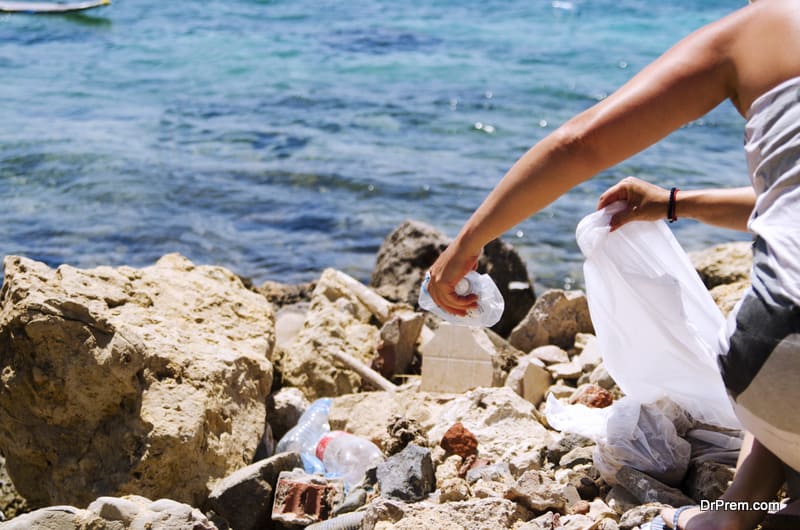
Other trademark features of responsible tourism are to leave a positive impact on the ecology. This requires a well understanding of the ecology so as to find out what harms it and what benefits it. This knowledge naturally comes through study. Once knowledge is acquired, you need to plan thoroughly considering all angles for its implementation such that your actions directly promote the welfare of the destination’s ecology.
Planning responsible tourism would in the first step involve the selection of your tourist destination. The internet information will be of immense help. You explore magazines and periodicals and identify your dream location where you intend to make you useful trip.
If you have decided to do your travel all by yourself without the assistance of a tour agent, the volume of your planning exercise would mount.
Right from selecting the season of visit, you need to have finite programs handy covering the type of accommodation to be booked, the choice of flight, decision to avail discount on long advance bookings, the amount of foreign exchange reserve you need to carry, the overall tour budget, the photography kit you are going to take and countless other issues for which you need to have a thorough planning exercise.
Since responsible tourism would draw its inspiration from the resolve of member committed to extend all their favorable contributions towards the uplift of a destination in all aspects, selection of a motivated team of co- tourists would necessitate a considerable planning exercise.
Larger the size of your productive team members more is the scale of benefits showered upon a destination as because your solitary effort would hardly have any positive impact on a destination however gracious your intent might be.
While going on tour ensure you do not carry any harmful chemicals the spillage of which on visited place would harm plant and animal life.

If you are a habitual smoker or you have any team member addicted to nicotine or booze, refrain from such habits at least for the time you spend on travel. Carbon in solid or in forms of puffs causes irreparable damage. Plan well ahead not to carry any such filth to unspoilt locales that may pollute the environment.
Your planning effort should be put into exploring accommodations where you would be put up. Try to select hotels having a specific environmental policy. This you can find from online information sources and plan ahead the duration of your stay as this factor is going to affect your hotel bill directly having an impact on your budget.
Plan your local travel on vehicles causing minimum emission of spent fuel. If possible, you may well take a bicycle on hire and ride a pollution free round. For that matter, trusting your feet would be a great idea. It’s nothing like taking a long walk around the sites you intend to travel around. It is healthy and peaceful.
If you plan well for the trip, almost half the job is done. You are left with the execution now, and that starts no sooner you leave destination for your trip. With an effective plan in hand you can visualize the future shape your responsible tourism venture is going to take.
Planning can make your mission successful if only you care to select your travel agent well after appraising its credential from different authentic sources and cross check to get a satisfactory confirmation. Even if you are hiring the service of a travel agent, planning becomes essential as you got to match your resources and time with the itinerary chalked out by your agent. If you haven’t planned well, your responsible travel will go off the target.
Budgeting responsible tourism

If we admit that without planning we cannot take our responsible tourism next step to reality, we may go a step ahead and admit that improper financial estimates would yield no fruit. While framing a budget would be immensely helpful for responsible tourism, one should be wary enough to work out the financial estimates on a realistic basis.
This needs keeping a track of the latest prices ruling the place you have chosen for responsible tourism.
You can have your price information on the internet. You may collect data from travel magazines and brochures published from the department of tourism or from the embassies. One fact needs clarification is that your physical activities, scale of consumption, duration of stay and the class of accommodation you pick straight away gets translated into money that is likely to leave your purse forms the basis of your budget.
However, the actual budget should not sit tight around estimates of expenses you have collected on survey. It should be flexible enough allowing some buffer space whenever your physical targets overrun. The entire itinerary needs to be broken down into segments to facilitate fixing your budget. More the number of fragments better will be the accuracy of your travel budget. If you have decided to make the lives of your travel destination inhabitants better, it cannot simply create magic with your smile. You got to make your contribution in terms of money.
Money leaves your coffer in exchange of local products and visits to cultural shows, skits, art exhibitions and countless display of local talent. A sizeable chunk of your travel budget features in this area. A word of caution! Bargaining on price and buying a local craft is a tricky exercise.

First issue that pops up is the authenticity and reliability of the product. If you are cheated, your money has gone down the sewerage! Take the help of your hotel information desk. They will be able to guide you into buying a genuine product. They may give you a brief idea on rough price structure.
For that matter, your tour guide may well come to your assistance on the issue of buying local products. Trust his experienced eyes. Hopefully, you will not be deceived both in terms of quality and price. Sometimes the price is inflated for a foreign customer. A survey of the local market and aggressive bargaining could be the solution.
If your target destination is far off from your residence or located in a country in the other hemisphere, the flight expenses will claim a sizeable portion of your budget. Be the early bird to buy your flight tickets well in advance and avail the bulk discount.
The option is yours if you would like to take the service of a travel agent or you would like to venture on your own. Travel agency fees will naturally make the most of your budget. While negotiating with the travel agent, have a crystal-clear perspective of all the service they will cover in the stipulated fee structure.
They may have schemes for offseason discount. They may have discounts on aged tourists, physically challenged people and bulk tourists. Credential of the travel agent is always an important factor else you won’t get satisfaction from the service you receive in exchange of money.

Accommodation features the next important area on your responsible tourism budget. The expense will directly depend upon the quality of the suite and the duration of stay. So you got to focus on these aspects if you want to control your rental on hotel. If the rooms are large enough, you can share with your team member to cut down on expenditure.
When your mission is focused on up gradation of ecological, cultural and economical environment of the destination, quality of accommodation is not always an important factor. You may compromise a little with the quality of your stay and save money to spend elsewhere specially the on your real mission of responsible tourism.
Similarly, you can save money in the choice of transportation. You may opt for public buses over costly cabs. You need to have information of their arrival and departure timings.
Food and beverages constitute a major share in your total expense graph. You will find eateries and different grades of food catering to different price ranges. Look for those joints where locals have their meals. You will have reasonably priced meals, and the quality of food is expected to be good.

Try to locate a hygienic source of drinking water. Fill up your bottle and enjoy a safe drink. This way you are going to save your money which may have been pointlessly spent on packaged drinking water. The load of your luggage shoots your expense bill to the sky. Keep your luggage light and handy. Pack those are absolutely needed. It is not wise to meet a high expense bill on porter charges and other cargo charges on trip.
Arranging foreign exchanges will be an important effort while budgeting in responsible tourism. Having a clear idea of the latest currency conversion rates of the country of your visit will however give you the real picture of the expenditure profile of your trip. The international currency market rate fluctuations may be erratic, but possibly it would not fluctuate greatly during the duration of your trip from the latest data you have collected prior to your journey.
There are organizations operating in the financial market for arranging credit for your trip. You can locate them from the internet. The repayment scheme and the interest aspect are important as you need to maintain your liquidity in your account when the repayment becomes due. The declarations, papers and documentations and mortgages kept as collateral security against the loan scheme are issues that would matter. The entire process and the financial costs involved should feature in your responsible tourism budget.
Travel and tourism arrangements in responsible tourism

With responsible tourism concept turning out to be more popular the need to put the enthusiasts right into their dream destinations has become a big and expanding business. Venturing all by yourself could be a difficult task especially when what lies ahead becomes a hazy vision, and you do not have any previous experience of a trip abroad.
Sensing the demand for responsible tourism travel agents and tour operators of various scale of capacity and resourcefulness have mushroomed catering to the needs of an ever growing market. The competition had been stiff and the operators failing to match their revenues with the mounting costs were turned out of the race.
There is a constant need to upgrade the quality and to expand the area of service and tailor it to a customized product. The pressure of business and an urge to survive in the long run in responsible tourism market has compelled travel agencies to extend their service globally forming a network and go on line to make themselves more accessible and more presentable to a potentially lucrative tourist market!
In today’s competitive world success and survival of a tour operator rests on how well is his webpage is designed. A comprehensively worked out site map and a brief introduction into the history of their business would be the basic platform that will hook the customer! There will be a space for FAQ where most of queries shot from the customer’s angle are answered. Today the agencies in the business of responsible tourism have their own environmental policies.
The environmental policies are not just showpieces. They are meant for the customers and feedback is drawn. The boarders are often advised to fill out forms and daily activity sheets. Contribution effort towards local environment, economy and culture penned down. Customers’ opinions are recorded. Views on improvements and grievances if any are entertained.
This customer -tour operator rapport helps establish a follow up base to initiate further action. The travel agents extend a wide range of services in the field of responsible tourism for a price. Organizing your passport and visa, booking your flight and accommodation and internal transportation in and around the destination site are the usual services.

Good and resourceful travel agents go a step forward. Sometimes they have loan arrangement to fund your trip. Loan schemes exist around a responsible travel program. Interest rates and repayment schedules are specified against your property, credentials and credit rating documents as collateral security.
Lots of innovations have been built into the type of agency services, and there is a shift from traditional concepts of customer service to those answering to the issues concerning the current time parameter. Travel agents often come forward and guide you on your responsible travel budget. They set the itinerary so as to ensure every dime you spend is responded by a fair level of gratification.
The budgets they work out are feasible and suits tourists from every economic bracket. Besides, good tour organizers advise you on your luggage load, the type of apparel and footwear should you put on, the guide on the general dos and don’ts and on precautionary measures to be taken. All these services certainly matters when you are in an alien land with unknown language being spoken around you and a set of unfamiliar customs and values ready to take you on surprise.
The tour operators sometimes offer seasonal discounts, and rebates are proffered often for the aged and physically challenged. Rebate is sometimes given to encourage bulk tour bookings. The tourists are advised to keep in touch over the net with travel agents to keep information on latest updates and on the fee discount issues.
However, before entrusting a travel agent with your money, time and your program you need to satisfy yourself as regards past records. There are fake agents operating in the market. There are travel agents who back out on services promised and there are travel agents who somehow intend to rush through the itinerary and collect as much money as possible from the customers.

Quality of service is their last preference. But all are not bad in the trade. There are first rated travel agents who really care for you. They offer you personalized service. They understand your mission and know exactly what you are looking for. They have custom designed their service for you and give you feeling as if they are a part of your family. Basically, like in other forms of tourism, in responsible tourism too the travel agents act as an intermediary. They sale a service to you on behalf of the original supplier and he does this for a commission. Besides being a bridge between the customer and the supplier, the travel agent may also market travel insurance schemes, travel brochures and car rentals, public transport time tables and deals in holiday currencies as well.
Travel agents and tour operators operate in responsible tourism sector with an extra bit of dedication and are not just driven by the profit motive. The responsibility of the travel agent percolates beyond attending the tourist’s needs.
He is often expected to educate his batch of tourists and indoctrinate them into being more beneficial to the environment, culture, custom, heritage and local people who inhabit the destination that he has toured. Not only the travel agent should voice his instructions to the tourists and sit back. They should motivate the tourist and set examples in the area of responsible tourism to follow.
Precaution and prevention tips in responsible tourism
When you see an opportunity for travel to a wonderful locale it is natural you are excited and on a high. Your enthusiasm is a great indicator you are going to enjoy every inch of your journey. However, over enthusiasm is not good. It may take you off your feet from ground reality.
It would be wise of you to measure all pros and cons and take preventive measures so that nothing goes amiss in a rush of excitement.The following preventive tips would be of much help while going for responsible tourism:
Try not to carry cigarette cases and booze bottles

These are potent vices that pollute the environment. Besides they have a grip on you which might lead to not so good consequences. So the best option is not to have these nuisances around you lest you might yield to the temptation.
Have a thorough idea of the accommodation you have booked
Its distance from the airport, the site you are going to visit, the local police station and the medical facilities are important. The quality of neighborhood where your accommodation is located is important as well.
Keep photocopies of essential documents
Before leaving your destination, get photocopies of your passport and visa, your flight tickets, bank cards, permits, licenses, and money receipts of any payment that you have made in advance and all the credentials proving that you are the person you claim to be. Keep a copy of these photocopies with you and leave a copy with someone you trust back home.
Keep all the important contacts handy

Contact details of your travel agent, your local tour guide, and the hotel reception you have checked in, the local police station and the nearest medical units and of course your friends and relatives back home should feature in your contact list.
Cancel all commitments that would figure during your stay away from home.
To be specific, attending important meetings and people should be postponed to avoid misunderstanding.
Make sure you have taken the basic items
Without these you might face real trouble. Medicines are very important as it is needless to say. Remedial pills and tablets for common ailments like fever, cough and cold and bowel upsets are a must. It is better to carry medicines from home. Medicine shops abroad may run out of stock when you need them. Besides language may be a barrier if you fail to explain what you need. Sometimes a medico’s prescription may be mandatory even in case of common medicines.
Beware of what you collect

Take as many photographs of wildlife you desire, but never ever have an eye on animal tusks, pelts, horns, reptile hides, furs, tortoise shells and corals. If you have collected these to carry back home, it would be a criminal offence for which you could be prosecuted in the court of law. Rather your focus should be to procure local handicrafts and art pieces that are not animal products.
Ensure not to pollute the surroundings
Throwing garbage in local streams, lakes and other sources of water and cleaning your clothes or contaminating the water with detergents and other chemicals should be avoided. Lend your support and cooperation to encourage answerable and manageable tourism with a very low impact on environmental, cultural and economic ambiance of the destination.
Avoid wasting water
Wastage of water while on a visit to a destination with the assignment of responsible tourism is a crime especially in the face of acute shortage of germ and pollution free drinking water in many places of the world. Conserve water whenever and wherever possible and follow the philosophy ‘water is life’.
Maintain discipline in photography

Do not take photographs of people, places of worship, cultural monuments, show of local art, dances, dramas, charades and musical programs unless asked for. Photography may be a taboo in the destination you have visited. Know the local rules and act accordingly to avoid local resentment and an embarrassing situation.
Dos and don’ts of responsible tourism
Responsible tourism demands a set of actions you should initiate and there are still other actions which don’t sit well on your trip and which you should refrain from delivering. Here is a list which is certainly not exhaustive, and there may be still other actions and in actions that would merit a mention:
· Keep your voice low

While camping in the countryside or having a long hike across a mountainous country or while on a wild life safari, the un-spelt and unannounced code of nature is to observe silence. You may communicate with each other using sign language or on a low tone hushed voice.
· Avoid noise pollution
Noise pollution is a big issue. It scares off the animals that might have been around in peace. The shrill resonance shatters the general tranquility, and the destructive effects of high pitched shouts may extend to dangerous results. It can unsettle a heap of boulders causing the mound to tumble down turning into rolling mass of lethal rocks.
· Do not trample natural flora
A common habit of tourists especially among the love birds high on romance is to engrave their names, promises, fragments of prose into tree barks. This is an act against nature and may cause harm to the plant life. If we care so much about nature, we must abstain from actions going against their wellbeing.
Plucking wild flowers and offering to your sweetheart would be alright if done on a limited scale. However, your outburst of passion quite often takes you beyond tolerable limits. Whatever you do beyond that would defeat the spirit of responsible tourism.
· Do not start bonfire or barbecue anywhere you choose to

d)Among jungle campers, it is common to start bonfires and barbecues right in the middle of greenery. Darks fumes of choking smokes fill the air. Heaps of waste carbon settle in the environment spelling disaster to the ecological balance. Animals scamper in fright and birds give out panicked call before the leave the terrifying place, which was once their peaceful nesting ground.
Mayhem sets in, and the calm forest comes alive with distress wails. Camp fires can lead to large scale forest fires reducing the plant and animal life to charred remains. Forest fires caused extensive damages and in some cases greenery is wiped out over vast expanses disrupting the ecological cycle.
Rains become sporadic leading to killer droughts and the soil becomes barren and fails to support any plant life in the future. The damage had been done permanently! And it may all happen just because of your irresponsible action.
· Do not dump garbage here and there
Dumping garbage and littering the environment with non-biodegradable refuse is a crime against nature. You should think a hundred times before you pack your food leftovers in a polythene wrapper and leave it round the corner of a bush. You have just planted unknowingly an item of murderous potential.
The odor of the food might draw a hungry animal choking on the polypack. You have committed a murder! So never dump wastes on nature’s realm. This is not the right place to do it.
· Do dispose off beer cans and booze bottles in proper places
Among other filthy habits that go against the very purpose of responsible tourism is dumping empty beer cans and booze bottles. The sharp edges of the metal and shards of glasses could inflict gore on animals coming into contact. This is another very irresponsible act of the tourist.
· Avoid answering nature’s call at unauthorized places
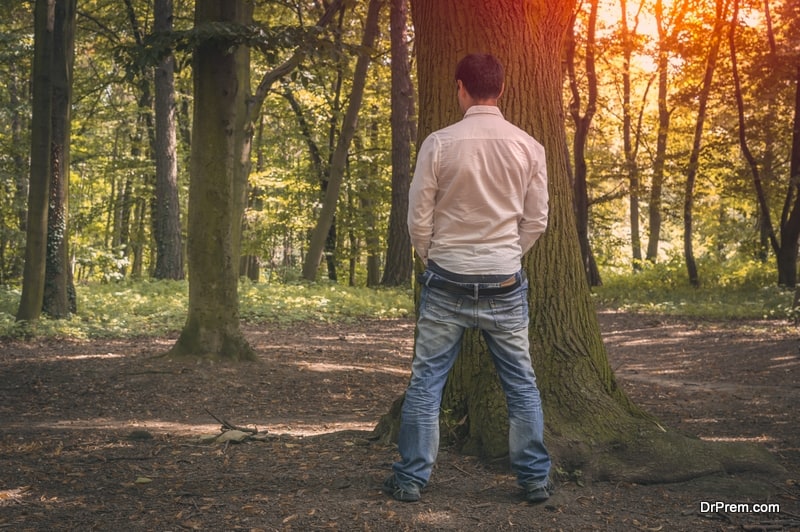
Defecation and urination in unauthorized places could spread contaminating diseases fast. Germs carried over from sick tourists may well break into an animal epidemic in the forest. This happens because of the irresponsible tourist behavior.
· Do not touch or pat animals unnecessarily
- h) Lovable animals like a stray rabbit, a doe kid or a frolicking cheetah cub may draw close. An urge to caress and pat or even to feed overwhelms the mind. You should however tame such temptation and never encourage your emotional instincts to take command over logic.
Wild animals feel the best when they are left to their habitat undisturbed. Besides, there might be a possibility of disease flowing from man to the beast and the other way round. There is a chance that the mother cheetah would be somewhere around. So be cautious!
· Follow the guidelines of fishing if you wish to
Fishing and angling trips are full of adventure especially trout fishing down the mountain creeks give the pleasure and thrill enough to hold you back on the spot for days. But do not over fish and clean the reservoir empty of its rich aquatic life. One important fact is to be borne in mind that you have never planted what you are harvesting today. You have never farmed the water with fish spawns, and indiscriminate fishing would go against the ethics of responsible tourism.
· Be an eager participant of the local culture
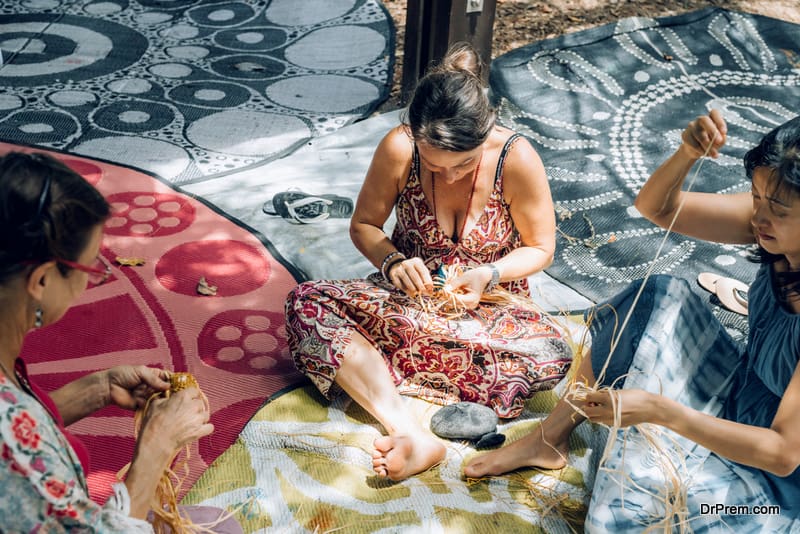
Folk dances, woodcrafts, locally crafted jewelry and embroidery, paintings and other forms of art pieces of a destination fascinate the tourists. These items have a creative and cultural value. It would be just great if you could attend their folk music and dances or if you buy their products.
This would be a shot of encouragement and the productivity would mount. Even if you do not purchase, your words of appreciation would do enough to inspire the artist behind the creation and would certainly boost his confidence and heighten his vision.
· Avoid over consuming natural resources
Similarly, nonstop consumption of nature’s wealth and cultural products that a destination is famous for would leave the place dry and barren unable to offer anything substantial and authentic to the future tourists. Consumption and paying a fair price for what you are consuming is fine, but it should not be a never ending story. If you do that, you are jeopardizing the sustainability of the travel destination.
· Avail local transport for going around
Whenever you are in a mood to travel around your destination select public transport, local rickshaw rides or even you can enjoy a long stroll on your foot and believe me you will have a sound sleep at night.
· Do take part in tree plantation programs
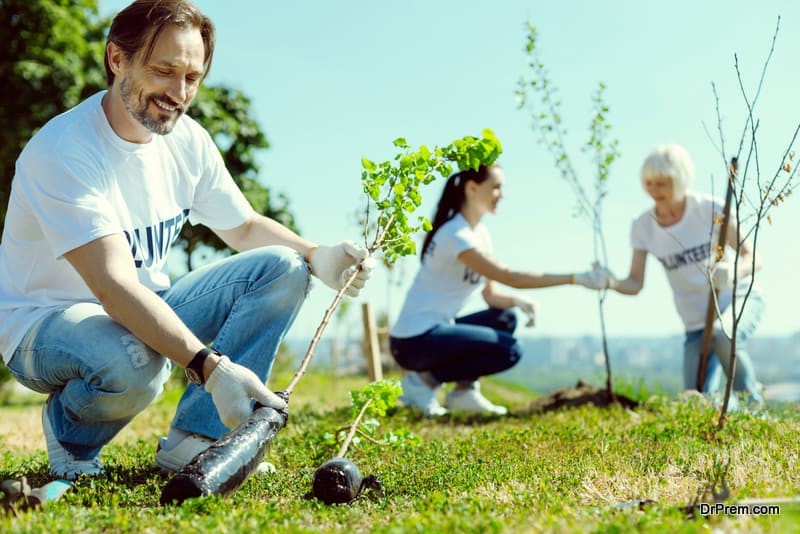
If you come across a tree plantation program on your trip, gladly offer your willingness to participate. One plant sowed in soil will help cleanse the atmosphere of pollution in the future. It will help restore ecological balance that may have been threatened.
· Book home stays to support the local economy
When booking your accommodation it would be just wonderful and greatly beneficial to the local economy if you select to reside in home stays. This is a brilliant concept where families rent out a portion of their residence to the tourists inclusive of food. You have a home away from home and a wonderful company to spend time with in an alien land.
Things to do post responsible tourism
It is sure a brilliant experience to go all the way through a responsible tourism itinerary. You feel to have done something very constructive. You have in fact contributed towards the welfare of the destination you have been to.
Appreciate the transformative experience

However, your mission doesn’t end once you hit back home. Your learning process continues. Your maiden responsible trip has made you aware of the importance of ecology in our lives, and the role the flora and fauna in fixing this ecosystem maintaining the nitrogen cycle can hardly overemphasized.
Equally important is the impact of an alien culture on your mindset. Probably you cannot ignore it, and the mere distance between you and the destination country cannot fade the reminiscence of the excellent cultural exposure that you had been through. If you deliberately try to cut it off from memory, you will probably miss out on something that is wonderful and might change the perception of your philosophy on life altogether.
The cultural and artistic marvels that you have seen, the mementos and local crafts that you have bought as showpieces of your living room, the new language and the novel gestures of courtesy that you have learned abroad have enhanced your material, intellectual and cultural wealth. They do not evaporate into thin air as you have dropped back home. They continue to keep you company for the rest of your life. They have widened the horizon of your level of thought process.
Display your trip collections as an educative tool
The photo shots and movie clippings not only display the charm of the magical place you have been to but also the positive role you have taken to make your visited destination a better place to dwell for the local inhabitants and worth visiting for the tourists.
Still photographs and movie camera shots taken on your responsible venture can become result yielding educational tools. The visuals with the background acoustics, clear and informative narratives will keep those interested back home glued to their seats. It could certainly be a blockbuster if you could collect scenes where you and your trip mates have successfully prevented a forest fire.
Give an exciting narration of your experiences
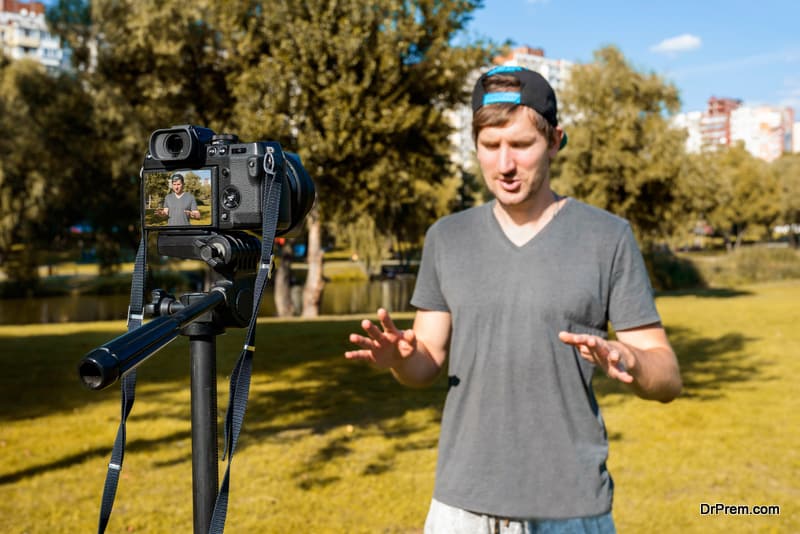
You might have attended and medicated a wild buck injured by a running vehicle and put it back to the safety of the jungle where it belongs. You and your team may have caught red handed an artwork vandal, restored the masterpiece and put the prick over to the hands of the authority. You may even freeze your initiative on a seedling plantation program that you enthusiastically deliver with approval from the concerned authority of the destination.
It may seem that all these possibilities are a part of your wishful thinking, but you never know when an opportunity is going to explode on your way. So keep your camera handy, motivate your team in focus and seek for opportunities. Visual impact of these clippings directed at doing something good to Mother Nature and its inhabitants are tremendous.
They instill a sense of accountability and awareness in the minds of the audience you have invited in your guestroom. They will come to know about our different regions of the world, their ecological, economical and cultural environment and the imperative need to preserve, promote and respect for these wonders.
Emerge an ambassador of responsible tourism
You have in fact become a sort of brand ambassador of the country you have visited. Post responsible tourism, there is absolutely no point in just sitting idle and brooding over all what had caught your fancy and fascination. You need to turn the activation key inside you and jump into action. Once you do this, you are simply flooded with waves of constructive and innovative projects for promoting the culture and ecology of the destination you had just been to.
Since communication has turned global, at the blink of an eye through social networking sites you may continue to be in touch with friends, communities and organizations you have come in contact on your trip. The contacts those have fascinated you can keep you updated on the latest developments on the cultural and ecological fronts, and may give you significant feedback on the avenues through which you can plan your contribution and spread your opinion towards making the destination an enchanting locale to travel.
Make the best of your blogging skills

The internet has brought in wonders. The pleasure of blogging! You can blog your opinion. You can blog your passion. You can photo blog your likings for a place that may have enchanted you. A person may have fascinated you, and an idea may have appealed you.
Blogging is a very fast communicating medium aided with a bit of statement or illustration or a fair combination of both that reaches a wide section of users at a single click! All you have to do is just get yourself registered in a social networking site and keep on posting your blogs.
Youtube videos with proper audio support and significant shots of the subject matter with the message of responsibility, accountability and positive attitude expressed towards improving the environmental, cultural, ecological and economic state of your visited destination can set fire to the passion among the users.
A fiery sense of duty and determination is infused in their veins, and you have your first step taken towards the realization of your dream.There are still a lot more to be delivered. We should try to be the torch bearers holding the mission of responsible tourism and make the world a safer place to live in and roam around in the face of threats like global warming and socio-political disintegration lurking in the background.
Countries promoting responsible tourism

Responsible tourism is widespread now, and with the increasing concern about global warming, natural disasters, global political and economic instability lurking behind a deceptively calm façade, tourists have been giving a serious deliberation in this area.
Quickly realizing its enormous potential, countries have come up with all marketing efforts to make responsible tourism even more attractive to ensure a steady flow of tourist dough into the exchequer. These countries in addition to offering a tourist oriented and eco-friendly cozy stay at some of their terrific accommodations inspire their boarders and cultivate into them the concept of the responsible tourism. The enlightened tourist now doesn’t think much about tourism overlooking the elements of responsibility and sustainability.
Some of the countries moving ahead in responsible tourism are enlisted below:
Kenya
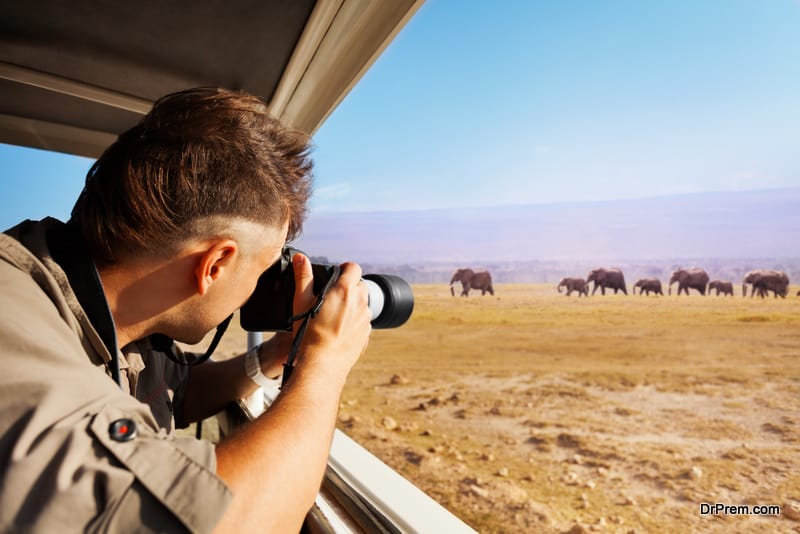
This beautiful wildlife country has brought about innovative additions in hotels and lodges and turned them to more environment friendly accommodations. Posts have been created to induct environment officers who would effectively handle environment related issues. Hotels have installed organic cleansing plants.
Consequently, the waste water doesn’t collect into ocean polluting the marine world. The installation drains waste water from the living rooms, kitchens, toilets and washers through a bed of natural filters and eventually percolates into the soil below. A complete recycle system collects non-biodegradable wastes like poly-packs, which are sent to the agents for further synthesis. Tourists are not allowed to dump garbage on sea shores.
Hotels together with the tourism department have launched a whole hearted drive towards preservation of Kenya’s 1420 km coastline against erosion and litter spillage. The beauty of nature has been judiciously marketed and exploitation harnessed. There are enormous stretches of mangrove swamps, sea meadows and coral reefs to stun the viewer.
The wonderful mix of flora and fauna arrests the tourists’ attention. The department of tourism encourages a consortium of efforts from the tourists, locals, neighboring business and the ministry itself to seek an answer to the issues threatening the local culture and ecology.
Efforts have been in progress to exploit Africa’s natural resources in a carefully controlled way to mitigate local wealth deficiency. Almost 60% of annual tourist visit to Kenya that touches over a million every year can be analytically attributed to responsible tourism. This has absorbed around 10% of Kenya’s total work force into new jobs created on the platform of responsible tourism.
Thailand
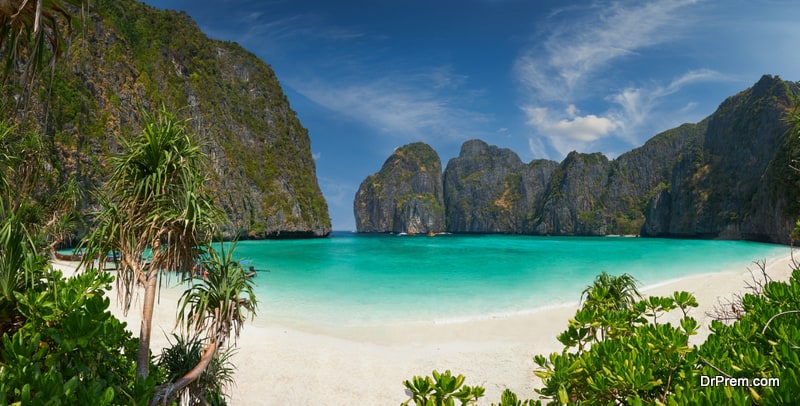
Thailand is a breathtaking nation, which has been under the monarchial rule, and the concept of leading a moderate life is inculcated among people from the king’s court itself. May be the Buddhist philosophy has taught the people to lead a controlled frugal life refraining from the elements of voracity and abuse of natural reserves.
The Thai ministry of tourism has comprehended those efforts leading to conservation of natural wealth and ecology, preservation of flora and fauna and upholding the cultural riches would culminate in socio economic progress. With the financial support from the Asian Development Bank, a policy was drawn up to put the dream of environmental sustenance showcasing cultural wealth before the foreigners encouraging responsible tourism among them.
The prime object of the policy was to encourage minimization of destructive impact of tourism on the environment and culture, uphold the values of ecology conservation and enhance the economy of the tourist spots by contributions drawn from the tourists and all the stakeholders of tourism.
Thailand’s responsible tourism promotional efforts further received a moral boost from its ambassador MrHanns Schumacher back in 2009 who observed that the financial implication of ecological damage is several times more than the expenses necessary to prevent the damage. Time, money and efforts spent on nature friendly tourism would go a long way in creating a market in the tourism sector particular where all are egged on to be a little more responsible towards the environment and little more respectful towards culture.
Cyprus
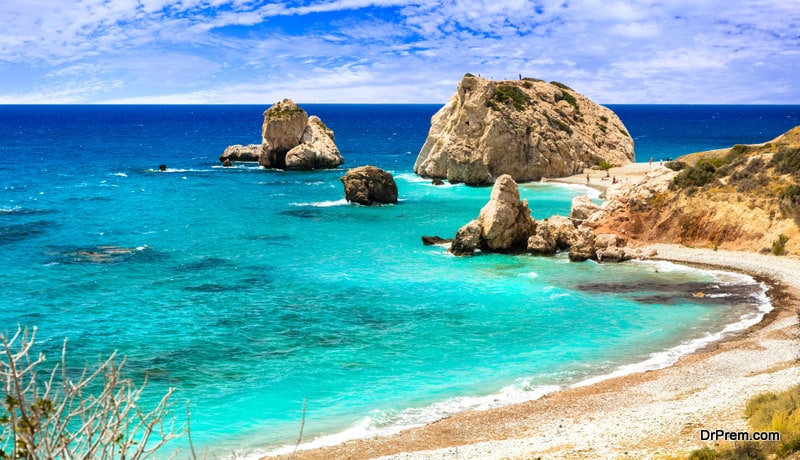
This tiny island of the European Union located on the eastern part of the Mediterranean Sea is a piece of beauty afloat on the blue waters. Its culture and heritage is rich and features in history. The ministry of tourism and the tour operators here focus on the most important buzzword that is currently sweeping the tourism industry that is responsible tourism.
Tourists are encouraged to tie up a relationship with the immense beauty of the island and acquire a deep knowledge into the island’s rich past. Cyprus has featured time and again in Greek mythology, and as far as the legend goes this is the birth place of Greek deity Aphrodite, the goddess of youth and beauty.
This island also features some of the world’s most ancient water wells bored into soil. Rich deposits of copper ore have made this island nation well known globally. A true atmosphere looms in the island that fosters a spirit of environmental and economical perpetuation and endorsement.
Singapore
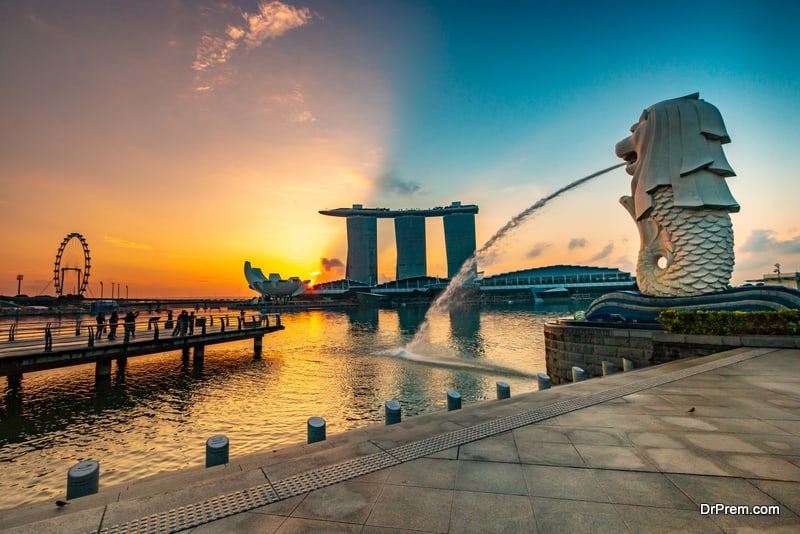
The promotional effort is little off the beat as exemplified here. An exclusive story competition is held annually where writers are encouraged to portray their experiences of responsible tourism. These stories are showcased in travel trade shows instilling further inspiration to travel enthusiasts for responsible tourism. The plot theme includes the narrator’s contribution towards protecting a rare wild life species from getting eradicated.
Instances where you have cheered on the local people to display their artistic talent and cultural wealth are exhibited. In a nutshell, the story should employ tourism as a tool for bringing in benefit to the ecology and people who come in contact during the trip.
Italy
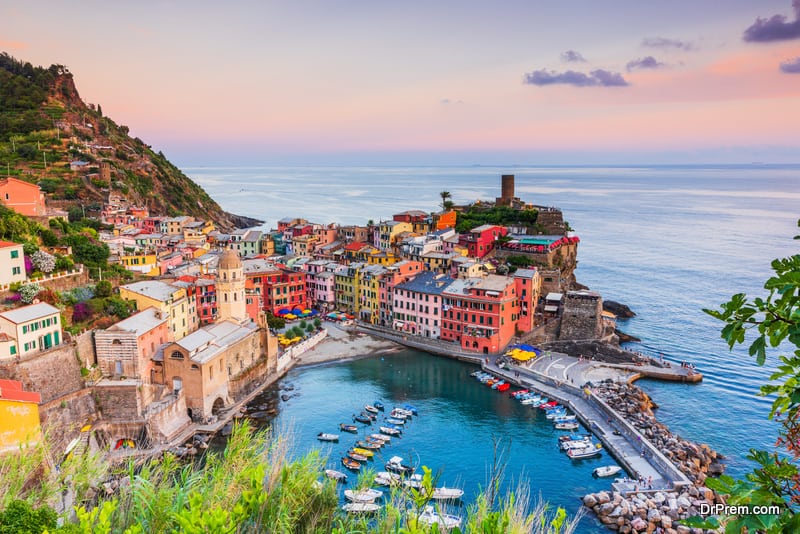
Italians are very passionate about their beautiful country which has perhaps touched the pinnacle of art, culture, history and heritage, and they expect the visitors to their country would carry same regards for its marvels and contribute towards upgrading the country’s natural and cultural prosperity.
The tourism policy in Italy promotes positive impact on whatever the outside visitor lays hand on be it environmental, art and cultural, material and immaterial resources that make up the core strength of Italian tourism bastion.
Top destinations for responsible tourism
Ten destinations merit a special mention as award winning picturesque locales endowed with the entire marvel to give you enough pleasure and an exposure to the lifestyle of the locals and their commendable endeavor to help conserve the environment around them. We have here the following list:
New Zealand

Mountains, lush green valleys and amazing glaciers that end up in splendid coastlines are some of the unique features that will stun you on your New Zealand trip. The above description cannot confine the amazing beauty of this island nation within the limits of a few adjectives for there are thick green woods and sloppy terrains offering you opportunities for a long hike.
There is an effort from all levels and all walks of life to use tourism to its optimum leverage drawing benefits to improve the living standards and turn the nation a better place with an all round progress. It had won the World Responsible tourism award in 2008.
Roros, Norway
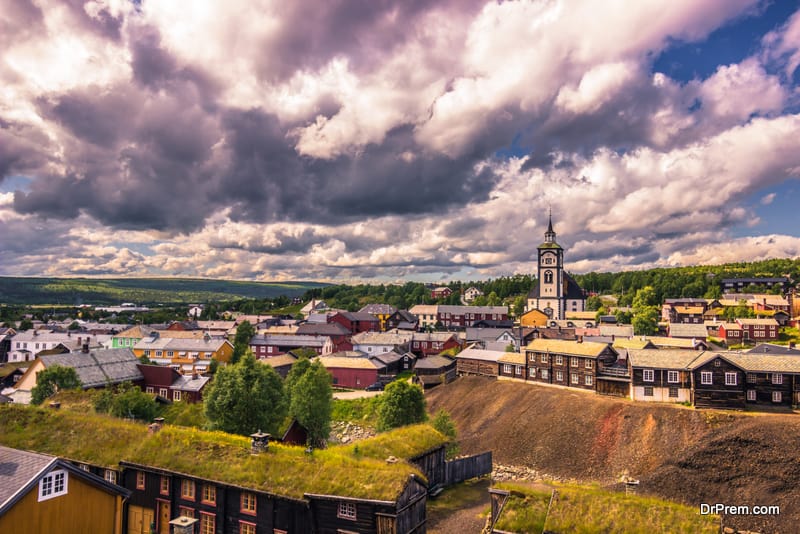
This old mining town frozen in time is also a UNESCO World Heritage site. For the past 85 years, it has invited tourists from all over the world and has preserved and showcased its cultural heritage. This is truly a breath-taking getaway where you relax and explore the local culture; go for long stretches of hiking and cycling through greenwoods and rowing across rippling blue water.
However, there is more to it like ice sledging and snow shoeing with the amazing herds of reindeers looking on. It is very nostalgic, and fragments of tradition are preserved till date for the world to see.
Bonito, Brazil
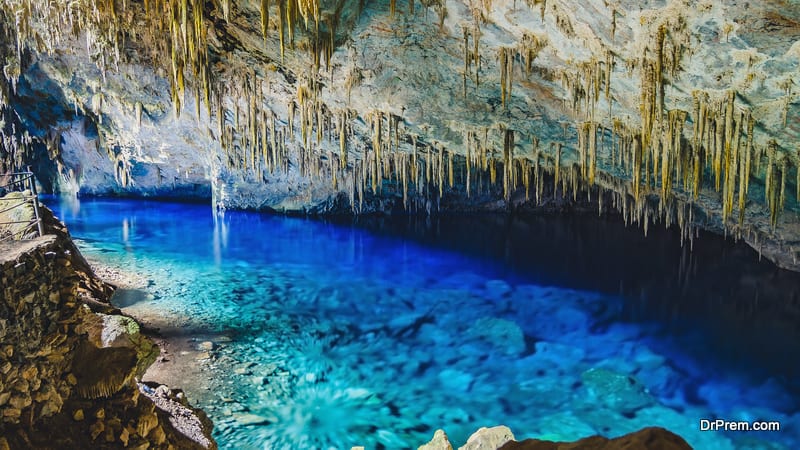
Obscure from the outside world, this Latin American paradise on earth is endowed with mountains, rich forest cover, caves and fabulous water bodies. Its approach towards promoting and encouraging responsible tourism is innovative and merits a special mention. It has bagged the World responsible tourism award in 2013. The collection of wildlife is splendid, and there is an all round effort to help you be a responsible tourist protecting its ecology, diverse spread of flora and fauna and ethnic culture.
The North York Moors, UK

This magnificent locale had the distinction of collecting the credit of being the best protected area back in 2004. The landscape is wild portraying a picture of the distant past. The magic charm is heightened by its splendid coastline, vast expanse of moorlands and Georgian town planning. You can have water as your transport in Harrow gate or just hire a two-wheeler to move around the awesome landscape.
Cape Town, South Africa
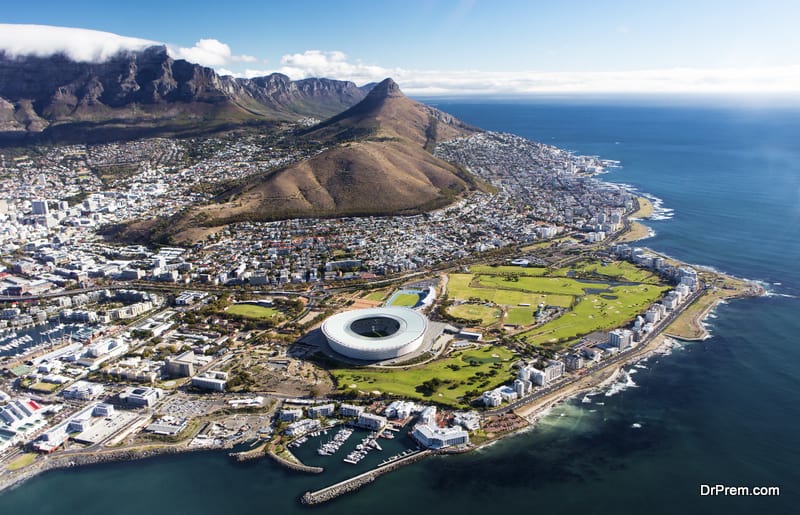
Nestled in the wildlife country with lions, elephants, rhinos, cape buffalos and antelopes sprawled around in a startling mix Cape Town is a place where history and space age modernity exist side by side in a serene co- presence. The exposure to cultural aspects of this enchanting land and the awesome scenic beauty is a treat to the eyes and largely informative. Preservation projects are innovative and well organized.
Tobago

If you are drawn towards authentic Caribbean culture, Tobago is one place where you will certainly taste it due to its rich assortment of wild life and the haunts. People are conscious of their natural wealth, and the entire environment and culture is conserved with painstaking endeavor.
The New Forest National Park, UK
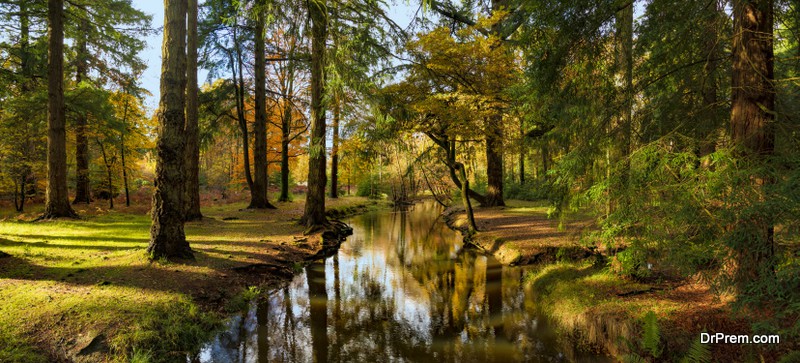
This is an old civilization as old as ninety years located in the southern part of the country bordering the sea. Calm and beautiful forestry, spectacular pathways, old world hamlets and ever-present forest ponies would transport you to a scene belonging to a past era altogether. This place has to its credit the world’s best responsible tourism destination award in 2007. Infrastructure is excellent and promises you a smooth transport.
Aspen, Colorado, US
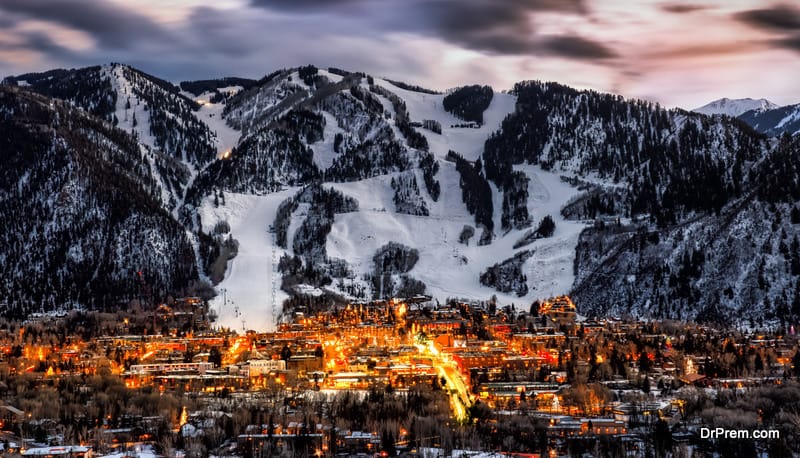
The city of Aspen is infamous for its notorious link with riotous indulgence and drug abuse. Its stunning beauty enthralls the tourist, and there is ample space and opportunity for outdoor adventures specially rafting down the nearby white river.
The adjacent forest is a heaven for long hikes and downhill slopes are fascinating to the ski buffs. Situated in the isolated region of the Rockies, the Elk Mountains and the Swatch range, this amazing destination is a paradise for tourists bent on tasting the pleasure of responsible tourism.
The mammoth mountains mesmerize you by their awe-inspiring beauty. Even the mountain sports are ecofriendly, and the care and preservative efforts initiated to conserve the environmental treasure has served a fitting tribute to laude this destination to the responsible tourism hall of fame!
St Kilda, Outer Hebrides

This is a brilliant fragment of archipelago; it is cut off from the mainstream bustle of the Scottish landmass and located in a secluded part of Scotland’s Outer Hebrides. These specks of landmasses carry the prestigious award of being the UK’s twin UNESCO World heritage site known for its exclusive cultural and ecological connotation.
Traces of developed human civilization are pronounced in this intriguing archipelago as is evident from matchless architectural remains from the prehistoric era, which has been meticulously preserved till date.
This marvelous place carries the rare distinction of being one among the few places in the world commanding a shared rank for its environmental and cultural excellence. This island is also a nesting bed for a myriad marine bird species like St Kilda Wren and Atlantic Puffins to name only a few.
The Lake District National Park, UK
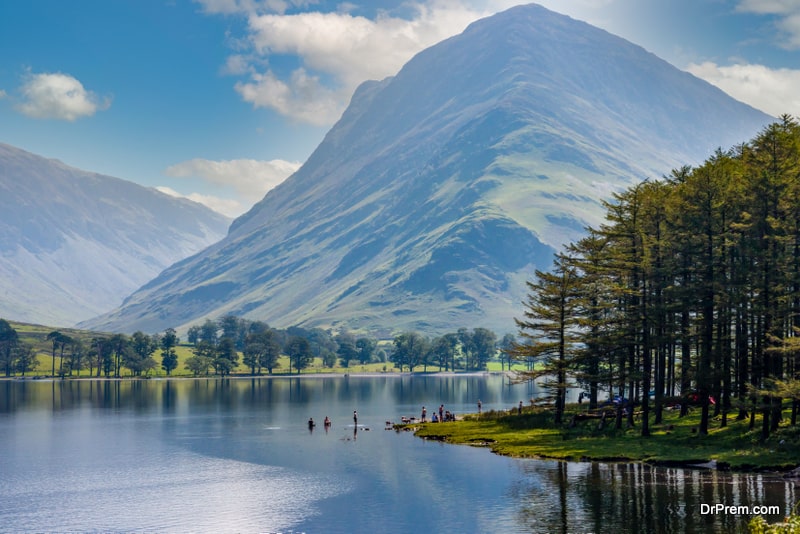
The country is noted for pleasantly surprising scenery, transparent water of the lakes and the thrilling adventure sports to keep the enthusiasts in high spirits. Here you see how tourism business merges into a consortium with conservationists and operate in harmony towards conservation of nature, heritage and ethnicity indoctrinating the significance of responsible tourism into customers.
The tourism board encourages the tourists to relish and comprehend the unleashed beauty that sprawls over extending its magic on the tourists guiding the locals attain a better standard of living improving their environmental, financial and working conditions.
This exotic place is located in the country of Cambria and boasts of mountains, panoramic valleys, lush meadows, rustic settlements, urban pockets, a fantastic coastline and fine-looking lakes. For tourists, there are cozy accommodations complete in every respect meeting all the modern requirements.
Here you have dream cottages, holiday inns and boutique hotels with fine dining accompanied by an assortment of choicest wines.Embarking upon this unspoilt location, you feel that there has been an honest effort to conserve environmental riches and cultural wealth. Being an ideal destination for responsible tourism, it sees a good annual inflow of environment friendly visitors.
Responsible tourism trend to stay forever

When tourism industry is under serious threats, responsible tourism can only make it sustainable. Tourists are more aware of their health and hygiene and the surroundings enabling all to reap the benefits of tourism. Destinations as well as tourists need to have the intent to adhere to safety and health protocols. So what we would likely see in the future responsible travel?
- Staycations are on the rise and will continue to grow as many travelers might choose near-to-home locations for a holiday break.
- Domestic and regional tourism will get a lift.
- Travelers are likely to choose remote destinations close to nature, enjoy farm fresh home grown meals and indulge in hiking, biking and other natural activities more.
- Preferring local travel means supporting the local economy, a likely trend to gain preference.
- Exotic and experiential destinations will be in the travelers’ bucket list than world-famous much-talked of destinations and places.
- Countryside responsible retreat tours will play a crucial role in community development.
Responsible tourism does not imply that you have to spend more, enjoy less and face too much discomfort. It also does not imply that you will have to travel to remote or undeveloped areas. Whether you travel solo or in group, it is your attitude that matters most. You just need to be more responsible in your activities.
Littering here and there or mindless consumption of food, water and energy goes against the principle of responsible tourism. Irresponsible behaviors will not allow you to enjoy the essence of travel to the fullest.
As global boundaries shrink and people travel more than ever, responsible tourism will gain more importance. With environmental awareness spreading fast to mitigate global crises, the travel world is geared up to witness a new generation of responsible tourists.


